#i do willy paul lyrics
Explore tagged Tumblr posts
Text
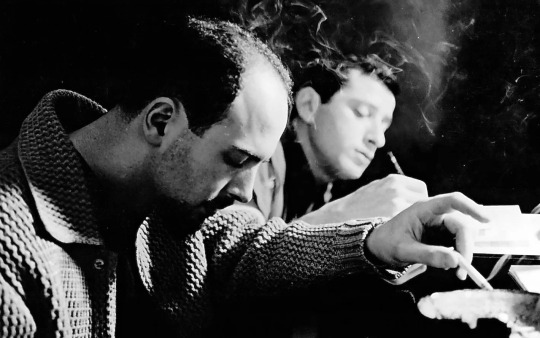
THE BEST WRITTEN SONGS OF ALL-TIME
Because I have zero innate musical ability, the idea that someone can sit down with a musical instrument, and create an original song out of thin air is magic to me. Songwriting is a craft, but it’s inspiration that makes a good song into a great one. There are songwriters who seem able to turn out high quality songs in perpetuity. There are others who write maybe one or two great songs, and are never heard from again. So, I made a list of what I think are the 50 best written songs I’ve ever heard. These are in no particular order. I’ve listed the title followed by the songwriter or songwriters, and in parentheses is the performer I most enjoy hearing do the song – although most of these songs have been recorded countless times by a variety of artists. You can probably find all of these on YouTube or any of the streaming services. Most have lyrics, but some do not. But, it’s hard for me to imagine any of these songs being recorded by anyone with talent, and not retaining the brilliance with which the song was written.
Claire de Lune by Claude Debussy (Eugene Ormandy & The Philadelphia Orchestra)
Rhapsody in Blue by George Gershwin (Zubin Mehta & The New York Philharmonic, Gary Graffman, piano)
A Change Is Gonna Come by Sam Cooke (Sam Cooke)
Coal Miner’s Daughter by Loretta Lynn (Loretta Lynn)
Hello Walls by Willie Nelson (Faron Young)
I Left My Heart In San Francisco by George Cory and Douglass Cross (Tony Bennett)
God Bless The Child by Arthur Herzog, Jr. and Billie Holiday (Billie Holiday)
Eleanor Rigby by Paul McCartney and John Lennon (The Beatles)
Blind Willie McTell by Bob Dylan (Bob Dylan)
A Remark You Made by Wayne Shorter (Weather Report)
She’s Always a Woman by Billy Joel (Billy Joel)
Roll Me Away by Bob Seger (Bob Seger)
Margie’s At the Lincoln Park Inn by Tom T. Hall (Bobby Bare)
Angel From Montgomery by John Prine (Bonnie Raitt and John Prine)
Rainy Night in Georgia by Tony Joe White (Brook Benton)
You Never Can Tell by Chuck Berry (Chuck Berry)
Where or When by Richard Rodgers and Lorenz Hart (Dion and The Belmonts)
American Pie by Don McLean (Don McLean)
It Was a Very Good Year by Ervin Drake (Frank Sinatra)
Gentle On My Mind by John Hartford (Glen Campbell)
Early Morning Rain by Gordon Lightfoot (Gordon Lightfoot)
Book of Rules by Harry Johnson and Barry Llewellyn (The Heptones)
Highwayman by Jimmy Webb (The Highwaymen)
American Music by Ian Hunter (Ian Hunter & Mick Ronson)
That’s Entertainment by Paul Weller (The Jam)
Song of Bernadette by Leonard Cohen (Jennifer Warnes)
Jazzman by Carole King and David Palmer (Carole King)
Talking Back to The Night by Steve Winwood and Will Jennings (Steve Winwood)
My Favorite Things by Richard Rodgers and Oscar Hammerstein II (John Coltrane)
Don’t It Make You Want to Go Home by Joe South (Joe South)
Sunday Mornin’ Comin’ Down by Kris Kristofferson (Kris Kristofferson)
Heart Like a Wheel by Anna McGarrigle (Linda Ronstadt)
I Am a Town by Mary-Chapin Carpenter (Mary-Chapin Carpenter)
Footprints by Wayne Shorter (Miles Davis Quintet)
Pleasant Valley Sunday by Gerry Goffin and Carole King (The Monkees)
This Old Town by Jon Vezner and Janis Ian (Nanci Griffith)
Brooklyn Roads by Neil Diamond (Neil Diamond)
Thrasher by Neil Young (Neil Young & Crazy Horse)
Box of Rain by Robert Hunter and Phil Lesh (Grateful Dead)
Is That All There Is? By Jerry Leiber and Mike Stoller (Peggy Lee)
Louisiana 1927 by Randy Newman (Randy Newman)
King of the Road by Roger Miller (Roger Miller)
America by Paul Simon (Simon & Garfunkel)
The Sound of Silence by Paul Simon (Simon & Garfunkel)
Children’s Crusade by Sting (Sting)
My Girl by Smokey Robinson and Ronald White (The Temptations)
Green, Green Grass of Home by Claude “Curly” Putnam, Jr. (Tom Jones)
Downtown Train by Tom Waits (Tom Waits)
The Whole of The Moon by Mike Scott (The Waterboys)
My Heroes Have Always Been Cowboys by Sharon Vaughn (Willie Nelson)
9 notes
·
View notes
Text
Cowboy Carter - Beyoncé
1. AMERIICAN REQUIEM: Just light the CMAs on fire, B! An impeccable intro to this album with varied sounds throughout the song that is representative of the sonic journey this album is going to take you on. 4.5/5
2. BLACKBIIRD: Stunning. Knowing no background about the song, I think it would still stop you in your tracks to hear these women harmonize and deliver each line with the perfect performance, emotional but not overdone. With the addition of the knowledge that Paul McCartney wrote this song about black women in the civil rights movement adds to the feeling behind the song and the feeling this version should have always existed. 5/5
3. 16 CARRIAGES- I heard the first two singles described as Texas Hold ‘Em being for country fans that weren’t sure about Beyonce and 16 Carriages as being for Beyonce fans that weren’t sure about country music and that holds up. This song describes Beyoncé’s ascension in the industry, and while I do like it, it’s missing something that makes me NEED to return to it like some of the other tracks here and on RENNAISSANCE. The way the chorus builds up into the titular line is really striking, and does stick around in my head. 4/5
4. PROTECTOR- This song is so sweet, just the right amount of hymnal to feel it in your spirit. The protector into projector line is *chef’s kiss*. 4.5/5
5. MY ROSE- an interlude, but I really wish it were longer because it’s got some really gorgeous and touching moments. 3.5/5
6. SMOKE HOUR- again not rating this, just had to note how tickled I was to hear Willie Nelson say KNTRY radio.
7. TEXAS HOLD ‘EM- I think this song has been stuck in my head since the Super Bowl. It’s so fun and makes you want to learn how to line dance in a pair of Daisy Dukes. 4.5/5
8. BODYGUARD- so smooth and sexy. If I were figuring out what to do with the Bond franchise, I would build a movie fit to make this the theme song and it would be a for sure blockbuster. 5/5
9. JOLENE- there’s probably too much discourse around this song for how serious it is, the Creole banjee bitch is having fun, so we can ignore a few corny lyrics (don’t raise full grown men though, ladies). There’s some really fun stuff going on in the background too, which is keeps a familiar melody interesting. 3.5/5
10. DAUGHTER- MURDER AT THE OPERA, and it is me who has been slayed. 5/5
11. SPAGHETTII- Beyonce having rap as a little side hobby she keeps in her back pocket is so cunty, country, petty of her. This would be one notch better if the hook in the chorus did a touch more for me lyrically. Beyonce’s harmonies over Shaboozey’s verse is perfection, though, so I will overlook it. 4/5
12. ALLIGATOR TEARS- the driving beat in the background never lets you feel at ease with Beyonce’s soulful yet slick performance. 4.5/5
13. JUST FOR FUN- a souldul, heavenly performance. Bey and Willie Jones sound great together. Willie fits in so well, his voice adds a gravelly, twangy flair. This is the CHURCH GIRL of this album for me. It’s objectively good, but something about it just doesn’t go all the way for me. 4/5
14. II MOST WANTED - This so fun! Miley and Beyonce’s vocals sound great together. A music video for this song would be magnificent. Fringe and rhinestones everywhere, vintage cars speeding through the desert, and I can picture them singing together on an upright piano in an old-timey saloon. This song does remind me of Gaga’s “You and I” and some of Joanne. She would have been a great option for this duet too. This song was meant to be belted out your car window at sunset. 4.5/5
15. LEVII’S JEANS- It’s most notable how clean and smooth Post Malone sounds! Everyone cleans up their act for Beyonce! I prefer “II MOST WANTED” a bit more of these two duets, but this is a fun little number. 4/5
16. FLAMENCO- it’s giving mafia but make it country. I know it was noted that a lot of these songs were inspired by movie and I would love to know what movie this one was. FLAMENCO has a bit of a theatrical flair. 4/5
17. THE LINDA MARTELL SHOW- Again, not rating this, I just think it’s very important to the thesis of this album. Genres are limiting. More on this later.
18. YA YA- this song begins the best stretch of the record and is a highlight on an album chock full of great moments. “YA YA” really showcases so many things that Beyonce does well. The intro call and response showing her cheeky sense of humor, then takes off like a shotgun with killer vocals and some social commentary (“whole let of red in that white and blue”) and moves into a sickening Beach Boys interpolation and is ass-shakeable throughout the whole thing (plus some some wild guitar shredding). And it keeps the country line dance-y vibe the whole time. An instant Beyonce classic. 5/5
19. OH LOUISIANA- an excellent transition, because you honestly do need a minute after YA YA. Would love to eventually hear the unedited vocals and/or an explanation of how they made Beyonce sound like this??? Going to skip a rating because this is just a transitional moment; I think very few people are playing this intentionally on repeat as a solo track.
20. DESERT EAGLE- sexy with a hot bass line running through it. Beyoncé makes do-si-do sound cooler than it ever has. The only possible complaint is we need an extended version since it’s only ~70 seconds long. 5/5
21. RIIVERDANCE- only Beyoncé could get away with the combining “Folsom Prison Blues”-esque verses, The Gift esque “running through the river”’s, a hint of 2010’s folk-pop stomp claps, and a and cheeky twerk anthem, “bounce on that shit, no hands”and absolutely get away with it. 5/5
22. II HANDS II HEAVEN- love the “no hands” of the previous song moving into this. This wouldn’t be out of place on Renaissance, but belongs here lyrically and musically as well. It’s not a stand out track, but still very solid. 4/5
23. TYRANT- I really like the beginning and I wish there was a little more of it or it was its own song. I also really like the second part, so it’s not too sad. This is the tight black leather type of country song. That string in the background and the beat are doing some work, which really rides an interesting line between country and RnB. 4/5
24. SWEET/HONEY/BUCKIN- a JOURNEY of a song, I would take 5 minute cuts of any of these portions. It’s a mix of everything that’s on the rest of the album. SWEET starts off with Beyoncé’s soulful vocals and gets a verse from Shaboozey that balances a country and rap fusion significantly better than most garbage on country radio that sounds like rap for people who are afraid to leave their suburb. The claps that follow are scientifically designed to make you want to dance. Into a slower, sensual(but short) HONEY interlude that then takes off like horse into the BUCKIN section which is just a goddamn banger. Sickening how hype this gets. Does Beyonce say “Look at that horse” because you could lift a horse when it’s playing?? 5/5
25. AMEN- an AMERICAN REQUIEM reprise that is a nice bow on the end of this gift Beyonce has bestowed upon us. Works perfectly if you want to go ahead and start the album over again (and you might) or go right in to RENAISSANCE. 4/5
I overall do love so much of this album. If we were to compare to Act i, I would say Renaissance is better as it is, for me, a no skip, play front to back album that is so cohesive. I think the Linda Martell interlude is key to understanding Cowboy Carter, because what is genre and is it important? I think the thesis of this album is that genre is limiting. To the critics that will say xyz elements aren’t country enough, she’s got Willie, Dolly P, and Linda Martell’s co-sign. Country fans checking this out will find Beyonce playing with so many different genres but can hopefully see the country twist she has put on them. In the opposite direction, Beyonce fans who might limit themselves to modern pop and RnB might discover the original Blackbird or Jolene, or they might look at works by the interlude or featured artists and find something they love and relate to. How much of genre do we relate to who it is coming from? Can a Beatles cover by Beyonce be country? Does it matter if it’s “country” if you like it anyway? Beyoncé is exploring and pushing the boundaries of every genre here. Where Renaissance feels very tight and cohesive as a record, Cowboy Carter is the Wild West with a little something for everyone. There does seem to be a general consensus that it’s a little long, but there’s no agreement on what should be cut. I love the way the interludes divide the record up into cohesive segments and those segments would feel incomplete if you removed songs from them, so I must come to the conclusion that the more Beyonce, the better. There are rumors she might do a rock album next, but the real message to be found here is that she can do anything she wants.
This album gets an average of 4.4 and I do feel it is absolutely an album that works together from front to back, so we will round up to a 4.5/5.
Top 3: Bodyguard,Ya Ya, Sweet/Honey/Buckin
What’s Next:
A review straight from The Tortured Poets Department. Thinking I might split it up into a few pieces. This already took me a while and 31 songs is A LOT!
12 notes
·
View notes
Text
ACT II
I spent a lot of time with Beyonce's new album. I think it's just, .. it's impressive, in a way that only someone like Beyonce could possibly try and reach for (and then could actually achieve). You have takes on Buffalo Springfield, you have Beach Boys, Tina Turner, some R&B, I hear Prince, you obviously have Dolly and Willie.. but then it also throws in actual rap, and riverdance (!?) in a country sense, but then can still tie it all together? You get yours.. Slay Queen.
While the first track truly did GRAB ME (just love starting an album with such a proclamation: 'THEM BIG IDEAS BURIED HERE' - and my word, yes there are), really my attention was peaked when I hit YA YA and then I doubled back through the rest of it and began to truly appreciate what I think she was trying to do. And repeatability, you can continue to listen again and again and again and find more and more to appreciate - something I just didn't get on Renaissance.
youtube
My friend and I argued a lot about the 27 songs (Laughly, then, Taylor's new one..come on - 31 tracks!?). My original view/opinion was that it's because she really was just throwing everything against the wall and wanting to see what stuck… But.. i've changed my mind now. It's the 27 songs she needed to stretch this 'country act' genre to the fullest extent of her ability and and what she wanted this sound to be and what it COULD sound like. And like, I said, it's .. impressive. She does it.
youtube
Also, I personally hate covers of Blackbird. An old story.. Blackbird was the first fingerpicking song I learned on the guitar, and it's just so stunningly beautiful just that guitar alone that when I first heard lyrics over the top of it, I was flat out OFFENDED. And frankly, still kinda am to this day, even when I hear the original. I mean, I've grown… I get it, I like the whole thing now of course, and it's one the great songs of all time (side note: man, the Beatles were just truly prolific, weren't they?) OKAY sorry - so when I heard the decision to make an untouchable (at least to me) cover of Blackbird track 2 right after her claim THEM BIG IDEAS BURIED HERE, it's just.. the boldness. It's impressive. And it wasn't until I learned that John/Paul had originally intended for a black woman to sing that song in the first that you mind just melts a bit. Every choice on this album was just stupid intentional. It works. It's impressive. Slay Queen.
AND where do you go from here? Man, I have literally no idea, but it's clear she's got some insane skills, and insane range, and sign me up for Act III.
9 notes
·
View notes
Text
youtube
On a classic music binge today with "Crazy" by Patsy Cline (1961).
"Willie [Nelson] wrote and was writing at that time, early '60s, very different songs from typical country music fare," says Paul Kingsbury, a music historian at the Country Music Hall of Fame and Museum. "Instead of the usual three or four chords that were just major chords and sevenths, he was writing 'Crazy' with jazzy minor sevenths, major sevenths, minors. If you count the chords, there are about seven chords in 'Crazy,' very different for a country song at the time. And also Willie wrote some great lyrics. There are some wonderful alliteration in that, and Willie was going through his own romantic troubles with his wife, Martha, at the time, and you hear that in his songs like 'Crazy' and 'Hello Walls.'"
Owen Bradley had plans for "Crazy". He wanted to produce a new form of country music. He had a number of innovations in mind. He wanted a background vocal to add richness and sophistication, so he brought in The Jordanaires, who also recorded with Elvis Presley. He hired a young piano player, Floyd Cramer, who provided what the other musicians referred to as "tinkling".
He had a bass guitar, which added a kind of jazzy percussion to the mix. And he set aside a whole recording session just to work out the background sound, without Patsy's vocal. That was added a week later. That doesn't sound complex by today's standards, but at a time when four songs were produced in an average afternoon session, it was incredible attention to detail.
We asked three of the session musicians who were on the original recording of "Crazy" to talk to us about it. They are Bob Moore, the bass player, Gordon Stoker, the top voice of The Jordanaires, and guitarist Harold Bradley, whose brother Owen produced the record. As they always did, they worked that day from a demo, a fairly unadorned version of Willie Nelson singing "Crazy". Patsy Cline was there while the musicians and Owen Bradley tried out the song, and, Gordon Stoker told us, she was not impressed.
"I remember when Patsy heard the demo, she said, 'Look, Hoss, there ain't no way I could sing it like that guy's a-singing it,'" Stoker says. "I always got such a kick out of the way she talked. Phrasing. The phrasing of it. The way he cut his words off and choppy. She didn't want to do it like that. She wasn't going to do it that way."
[...] "When they got the hit 'I Fall to Pieces,' they didn't have any more arguments," Moore says. "But before that, there were some arguments and disagreements. And one of the things, I think, was something Owen did was to make her slow down the songs. And she didn't want to slow them down. And when you slow them down, she'd put a lot of feeling in there, but sometimes I thought she just had a lot of feeling 'cause she was kind of mad at Owen because, you know, she wasn't really thrilled over doing something that slow."
[...] "Patsy [Cline] had incredible vocal technique," says Kingsbury. "She was a very powerful singer and very versatile, capable of growling or purring, vaulting octaves with ease. But beyond just the raw technique, Patsy was able to give you a window into her soul. You feel that you're hearing exactly how Patsy feels, almost as if she were a neighbor coming over for a cup of coffee, and spilling her heart out to you."
[...] "I remember how much I loved it," Mr. Stoker says. "I know I remember that. I remember I was pleasantly surprised at how great she did it, with how much feeling she did it."
There is a music legend about "Crazy" that it was recorded in one take. That's true and not true. The studio musicians recorded their part after what they felt was a good amount of rehearsing and experimentation. But when Patsy Cline came in a week later to record the vocal of "Crazy", she did sing it only once. That one version is magical, and it's still selling records. Young singers are still measuring their own efforts against hers. Country singer Kathy Mattea treasures the idea that a woman like Patsy Cline could walk into a studio and sing "Crazy" one time from the heart.
"One of the downsides of technology is that it has allowed us not to believe in magic anymore," says Kathy Mattea. "And when music is at its best, it's like throwing up a butterfly net and catching a moment in time. And, you know, when you work it too hard and make it too perfect, you know, it's like you don't see the forest for the trees. Sometimes the flaws in something or the moments where it's not perfect are what makes it special."
2 notes
·
View notes
Text
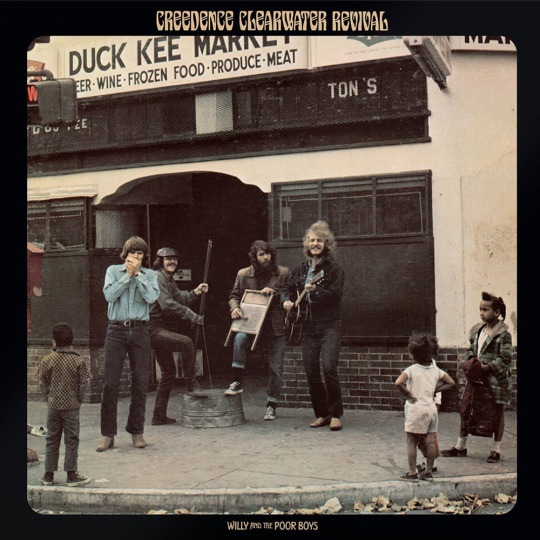
Creedence Clearwater Revival - Willy And The Poor Boys
After three albums of progressively cleaner tighter production the boys of CCR decided to go and do one more sloppy style. While the main hit Fortunate Son still has the crisp production of their recent output the rest is closer to the swampy slop of their debut. There's a solid amount of funk influence in their blues rock and it makes Willy And The Poor Boys stand out among their discography. There's a solid mix of politically charged and party songs that makes it very emblematic of the CCR style.
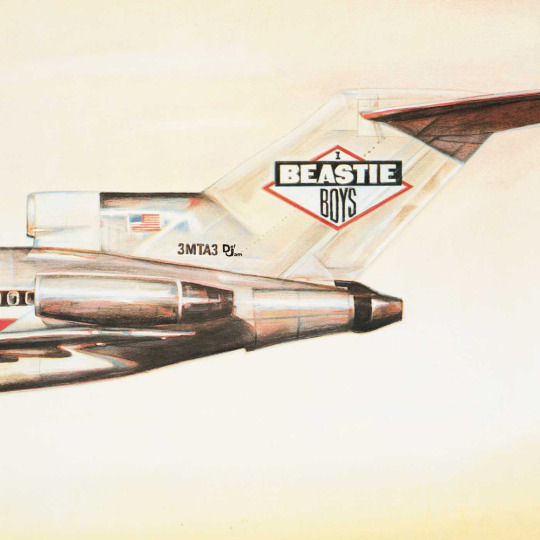
Beastie Boys - Licensed To Ill
I've said already how I love the Beastie Boys. I think they are one of the best at their type of flow and on their debut they are probably the most focused they ever were. Now I do think that focus comes at the expense of a fun looseness that permeates their next few albums, but it does mean that all the songs are more fully realized. I imagine that if Brass Monkey or Girls had been on Paul's Boutique instead they would have been a minute long each but here they get to be some of the Beastie Boys most well remembered tracks. Also a totally weird thing to be able to say about a hip hop record but the guitar solo in No Sleep Till Brooklyn rips.
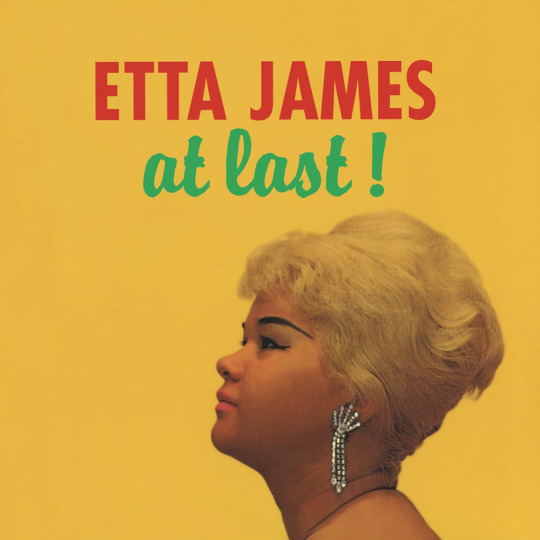
Etta James - At Last!
I've known the name Etta James for a long time but I've never knowingly listened to her until now. Her blend of traditional pop, soul, and rock actually caught me off guard. I wasn't expecting that kind of crossover energy from a female pop singer from 1960. The more rock and doo wop stuff was good but the more traditional pop/soul stuff was amazing. The title track and her version of Stormy Weather especially were amazingly delivered. James' voice is husky and rich, with a lot of toughness and it somehow works most beautifully with the more delicate songs. It gives them a sense of wavering confidence.
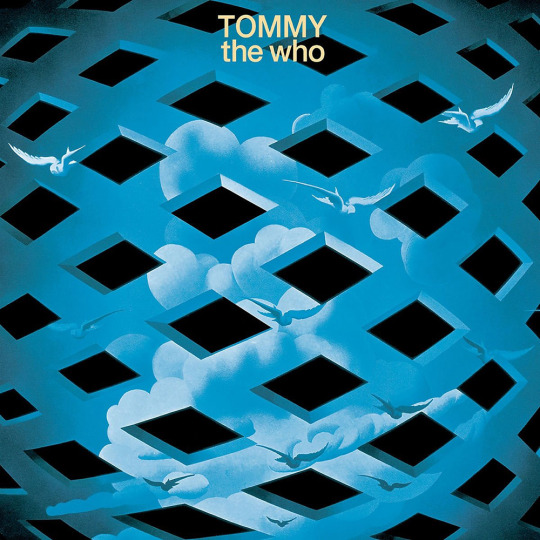
The Who - Tommy
On the face of it Tommy is an album about a boy who is stricken deaf, dumb, and blind by childhood trauma, experiences every kind of child abuse imaginable, and finally is cured of his condition only to immediately become an abusive cult leader himself and finally lose all of his followers when they realize he's a fraud. It's a lot and it's densely packed even as a lengthy double album. I find it to be very thematically interesting and, though I won't analyse it here, ideas about the cycle of abuse, a representation or Plato's allegory of the cave, and a condemnation of spiritual guidance in general are just a few of the things that I personally read into the lyrics on Tommy. It's a shockingly intelligent album from the band who once made a fake ad for baked beans. Musically this is also the most complex and mature thing The Who would ever write. Already a talented batch of musicians they show off harder than ever with Pete Townsend proving that he could arrange as well as any classical composer, John Entwistle pulling out the French horn on more than a few tracks, Keith Moon just completely obliteration the drum kit at every chance, and Roger Daltry successfully vocalizing the emotional depth of the story's various characters. As an attempt at real operatic formula it features an overture repeating motifs, and even a few interludes that could be called the rock version of recitative. It's bigger and more dramatic than any Who album before or after. It more than lives up to it's reputation and could stand to be more seriously analysed from a literary standpoint in my opinion.
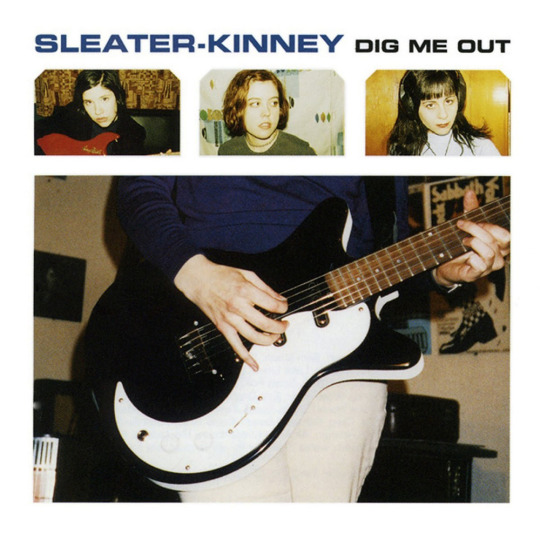
Sleater-Kinney - Dig Me Out
Coming out towards the end of the riot grrrl scene of the 90s Sleater-Kinney's third album manages to be a little cleaner and more nuanced than their contemporaries but no less angry. They deliver a hard hitting punk adjacent brand of alternative rock that is aware of grunge but is very much doing its own thing. The feminist themes common to the riot grrrl movement are on full display and nuance is out the window. There's no time for nuance when you are raging against the patriarchy and as a bonus Sleater-Kinney are not one of the terfy riot grrrl bands.
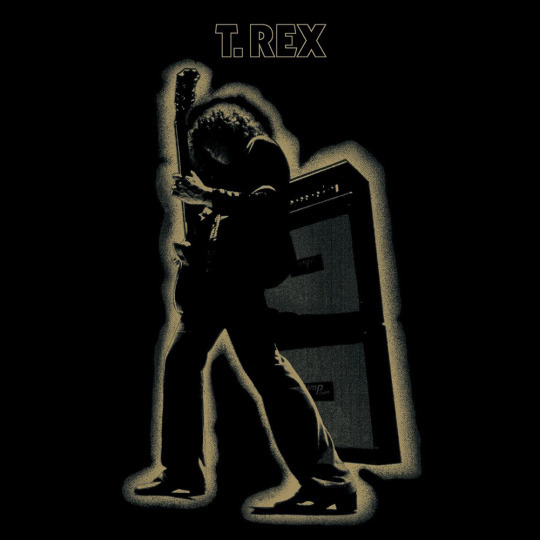
T. Rex - Electric Warrior
Electric Warrior is probably the most important release for the glam rock genre. There's this hint of folksiness mixed with a glitzy sheen and those two things are somehow not at odds with each other. The lyrics? Damn this shit is horny. Marc Bolan was exquisite at expressing sleaze without making me feel uncomfortable. There's this combination of cheek and haunting atmosphere that leaves me with the impression that Bolan is singing about fucking to keep something scarier at bay.
#500 album gauntlet#creedence clearwater revival#beastie boys#etta james#the who#sleater-kinney#t. rex
6 notes
·
View notes
Text
How Technology Is Changing How We Treat 009BET
She was a little bit country. He was a little bit rock and roll. Together, they were a whole lot of ridiculous. And somehow, through the magic of over-the-top musical numbers, phenomenal guest stars, and painfully kitschy acting skills, Donny and Marie Osmond captured the attention and hearts of the entire nation. While The Donny and Marie Show of the late seventies only lasted a handful of seasons, their outrageous prime-time antics have made a lasting impression on TV viewers of any generation.
The Donny & Marie Show was created by SId and Marty Krofft, the famed creators of other such offbeat television programs as H.R. Pufnstuf and Land of the Lost. It aired from January 1976 to May 1979 as a weekly on ABC and featured such famous guest stars as Redd Fox, Lucile Ball, Betty White, Jerry Lewis, and Milton Berle. The format usually consisted of an elaborate opening act followed by a series of comedy sketches and an even more elaborate closing musical number. But for all the campy scripts and synchronized dance routines, the real stars of the Donny & Marie Show were, without a doubt, the costumes.
The 1977 Christmas special episode is a great example of Donny and Marie’s ability to balance cutesy-poo costumes on that thin line between adorable and nauseating. Donny kept it simple; dressing in a matching white knit sweater and slacks combo with a red, white and green striped scarf, he wasn’t afraid to say to the world, “Hi! I’m Donny Osmond! I taste like spearmint!” Marie made bolder choices in her winter finest with what looks to be a one-piece body suit but, upon closer inspection, turns out to be a sweater and stretch pants that are just slightly different shades of green. What makes this episode so memorable costume-wise is the fact that the entire Osmond family was featured –Mother, Father, the small army of twenty-eight that is the rest of their immediate family– and they all match. I’m not sure who was in charge of coordinating outfits for that episode, but my hat 009 game certainly is off.
Another interesting costume extravaganza was the episode in which Marie celebrated her 18th birthday. In this episode, Marie and Donny sing their familiar weekly number, “I’m A Little BIt Country, I’m A Little Bit Rock-and-Roll”, but this time — gasp! — they switch lyrics! That’s right! And what kind of dramatic turn events would it be without ridiculous costumes. Both Donny and Marie sport matching silver outfits. Donny has a faux-western theme going on, while Marie looks like she just got back from touring with David Bowie. Marie also has an enormous new hairdo or, as Donny refers to it, a “hair don’t.”
Donny and Marie didn’t stop at matching scarves and silver jumpsuits, though. In one episode, Donny portrays a superhero character known as Captain Purple, wearing an oversized purple muscle suit and wig and, as his mild-mannered alter-ego, a flannel suit. Not to be outdone, Marie suits up herself as Gnidder Neleh (Helen Redding spelled backward) in an equally campy red-orange mini-skirt and wig.
Star Wars being the cultural phenomenon that it was, it only made sense that Donny and Marie would have to do a parody of it. Donny plays Luke and Marie plays Leia with such guest stars as Redd Fox, Kris Kristofferson, Paul Lynde, and a few of the Osmond brothers. The costumes were polished, Osmond-style variations of the originals; unfortunately, C-3PO ends up stealing the show.
The best costumes of the entire series, however, belong to the famous Wizard of Oz episode. Marie plays Dorothy in a red checkered dress and pigtails, Donny is a Willy Wonka-esque Wizard in a yellow-green, curly wig and sparkling fez hat, and Paul Lynde is a downright terrifying Wicked Witch of the West in full green face paint, black gown and gruesome fingernails. Additional victims…err, guests…of this episode include Lucille Ball as the Tin Man, Paul Williams as the Cowardly Lion and Ray Bolger as the Scarecrow. The entire production is technicolor bizarre; the epitome of classic Donny and Marie.
While the show did indeed host a laundry list of Hollywood greats, the real stars weren’t the people on the stage but the clothes on the people. From platform shoes and bellbottoms to capes and ice skates, Donny and Marie weren’t afraid to let their clothes pick up where their own talent left off. And while some may find The Donny & Marie Show silly and outdated, one thing is for sure; there hasn’t been anything like it on television since. Wardrobe-wise, that is.
0 notes
Text
Solid reasoning! If I may counter-conspiracy for a moment though, I've got alternative hypotheses (Or, let's be honest, guesses) about Raven and the Wanderer
I think that Raven is Jenna's "Uncle Ray." Like you mentioned, Raven's got a connection to Xandoria, since that's presumably where Lloyd got his new body, and the three of them might keep visiting so Han can keep in touch with Jane or her descendants, and we know he's adopted the role of "everybody's friendly (R-rated) uncle" before, so he might not be Jenna's biological uncle. What little description of him we get is that he "loves his wild excursions" and that he hasn't gone back into the Great Collective, which might mean he isn't really part of Xandoria, but more of a visitor Now, I think the big, obvious issue with this is that Uncle Ray is, well, dead, according to Jenna. That could be her assumption, though; did she necessarily do a body count, or did she just realize she was the only one left alive, so Ray must have perished? Raven could have blipped to a different narrative instead, either thinking everyone else was already dead, or intentionally abandoning the crew to their fate, since he might not actually have a familial connection to Jenna that he would care about that much, especially in light of his promise to be there for Han going forward; he might not risk dying for a maybe-not-actual niece. Whether Raven is Ray or the Wanderer though, I think you're definitely right that Paul wouldn't be able to resist some cameos from the Playhouse crew here and there.
As for the Wanderer, setting aside the possibility that he's a totally new character because that would shut down our wild speculations, I think he actually COULD be one of the Puppetshades. Yes, he mentions them in his song, but the lyrics are so messed up, it could have been "the Puppetshades and I…" or "the other Puppetshades…" Who knows what we can really take away from that song? My guess is that the Wanderer is Skyler. Yes, he's voiced by Paul and not Nora, but Skyler's sobriquet is "Magic Skyler" after all; shapeshifting/voiceshifting might be in his skillset, and it'd make sense that Paul would voice that part himself rather than getting another VA to voice a bit part we may never hear again Do I have any evidence to back this up? Well… not really, but hear me out: Right after the Wanderer's scene, we get the Oki and Skyler exchange, where Skyler says he "just made a move." I guess that could refer to him sending the Wanderer to 9A, or influencing the Kratu to bomb him, or maybe something to do with the attack on Jenna's ship/saving her from being lost in space, but I think the easier answer is that Skyler disguised himself as the Wanderer to set off the entire chain of events that constitute the rest of the album As for the other Wanderers, if they aren't Lloyd and Han, they could be the, like, go-to disguises for the other Puppetshades. Two of the five are supposedly out of commission, either dead or lost, gone askew, which would get us to three remaining Wanderers; or, since Oki and Cindilou have both been holed up in their respective sanctums, they may no longer be "wandering" and it's Skyler, Dottie, and Piper who the Kratu think are the remaining, active Wanderers. Once again, no hard evidence for any of this, but my gut just kinda says that Paul wouldn't immediately have well-established characters driving the plot for the new series? I dunno, that's maybe just me
Finally, I think Wilhemina IS William! Right at the start of the Cabaret, she says something about "trying a new archetype out for a bit," which could mean that William's moving on from his preferred archetype of Old Coot Willie and trying out, uh, judging by her jacket, Lion Tamer Wilhemina? We can workshop the name :P Here's my reasoning: The names are similar, obviously, but Wilhemina is also capable of narrating for OTHER POSTIES without them noticing, and even snaps and freezes the rest of them so she can give a witty comment, a level of control that even Sarah never reached when fully powered on mutant children juice, but WOULD make sense coming from the oldest, most advanced posthuman. I think during that snap-based aside to the audience, she also referred to Lloyd and Raven as like, her trash boys or something? It's been a while since I listened, but she made some comment that established that she knew them and was fond of them, which could make sense if William sees them as, like, his followers, working their way onto the higher paths he's operating on From a meta standpoint, it also makes sense that Paul would want William (who didn't have an established voice actor) to be voiced by someone he could reliably get to reprise the role, and who didn't already have a postie character they were known for, just like Lauren
This rambling screed brought to you by I've listened to this album approximately 126 times since it was released two weeks ago and I needed somebody to conspire at :P
ok ive convinced myself the wanderer is raven and i Will elaborate if asked that is a threat
#posts that are utterly incomprehensible to my mutuals#shaperaverse#the black beyond#the puppetshade chronicles#the wanderer#uncle raven
21 notes
·
View notes
Text
Singer Willy Paul takes action after being exposed by Miss Pisacah
Singer Wilson Ouma Opondo aka Willy Paul has taken action after his former signee Miss P accused him of sexually assaulting her severally.On Wednesday, Pozze opted to crack the whip on Miss Pisacah by deactivating her Instagram account that was being Managed by his Record Label Saldido. A cross check done by mykenya0, indicates that Miss P’s Instagram account is no longer available, hours after…
View On WordPress
#al qaeda willy paul#billmwangi#Breaking News#i do willy paul#i do willy paul español#i do willy paul ft alaine lyrics#i do willy paul instrumental#i do willy paul lyrics#i do willy paul mariage#i do willy paul remix#i do willy paul wedding entrance#lehenga willy paul dance#mejja x willy paul#miss p willy paul#miss p willy paul lyrics#miss p x willy paul#nadia mukami x willy paul#nandy x willy paul#nyimbo za willy paul#rayvanny x willy paul#reckless x willy paul#samantha j willy paul#size 8 willy paul#size 8 willy paul gloria muliro#size 8 x willy paul#teddy b willy paul#why willy paul quit gospel#WILLY PAUL#willy paul 10 over 10 performance#willy paul 10 over 10 yesterday
0 notes
Text
The 2022 edition of the Newport Folk Festival
This past weekend, Joni Mitchell and Paul Simon made surprise appearances at the Newport Folk Festival. This is Joni’s first appearance at Newport in 53 years, having last appeared in 1969. She had an aneurysm in 2015, so her being there at Newport playing the guitar and singing (probably an octave lower than she used to) is a miracle. Rolling Stone has the story and tells it better than I can.
So, here are some You Tube captures of history.
First, Both Sides Now, accompanied by Brandi Carlisle:
youtube
An observation of this performance by Pitchfork:
The glowing center of the performance is “Both Sides Now.” She sings it as a duet with Carlile, who delivered several other songs in Mitchell’s original vocal register, an octave higher than where she’s singing now, an effect that gave a flickering illusion of the aged songwriter trading verses with her younger self. For “Both Sides Now,” Carlile goes low too, and stays mostly in the margins, so that we only hear Mitchell as she sounds today. The arrangement is stately, much like the 2000 recording, allowing her to linger on lines that pass by quickly on the original. “Tears and fears and feeling proud/To say ‘I love you’ right out loud,” she sings slowly, presenting that display of vulnerability in the face of uncertainty as a feat of strength. “But now old friends are acting strange/And they shake their heads and they tell me that I’ve changed,” she continues, ascending through the melody with casual grace. “Well something’s lost, but something’s gained/In living every day.” I found myself wondering, not whether this song still carries any resonance for Mitchell at 78, but how she managed to write it in her early twenties.
Now, Big Yellow Taxi, probably one of the first popular songs that poked into environmental issues. Some of the lyrics:
They paved paradise and put up a parking lot With a pink hotel, a boutique, and a swinging hot spot Don't it always seem to go That you don't know what you got 'til it's gone They paved paradise and put up a parking lot
They took all the trees, and put em in a tree museum And they charged the people a dollar and a half to see them No, no, no Don't it always seem to go That you don't know what you got 'til it's gone They paved paradise, and put up a parking lot
Hey farmer, farmer, put away your DDT I don't care about spots on my apples Leave me the birds and the bees Please Don't it always seem to go That you don't know what you got 'til it's gone They paved paradise and put up a parking lot Hey now, they paved paradise to put up a parking lot
youtube
Now, the Ira Gershwin song, Summertime:
youtube
Paul Simon’s performance was equally impressive, but seemed a little more ragged than the songs performed by Joni Mitchell, as if he’s trying too hard. You can read about his appearance and performance and the background in Rolling Stone. Here’s he is doing The Boxer, accompanied by Willie Nelson’s son, Lukas Nelson:
youtube
30 notes
·
View notes
Text
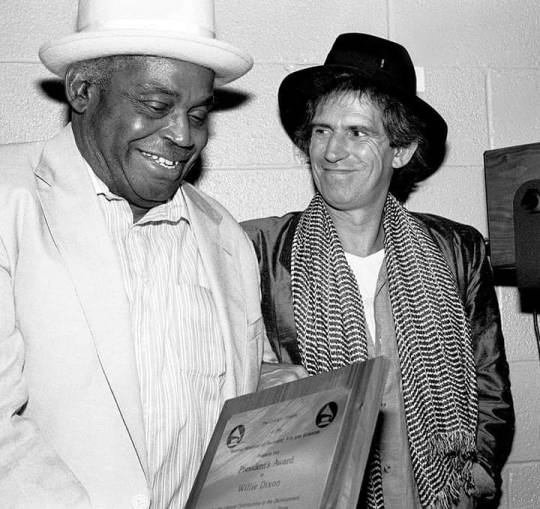
It would have taken 10 guys to do the things he did. —Keith Richards, on Willie Dixon’s contributions to the modern blues and American popular music scenes.
Willie Dixon states that one of the functions of the blues is a communication tool: “The people, regardless of what condition an individual is in, they want to be in better shape. They believe in letting somebody know what condition they’re in, in order to help themselves. Whether it’s good, whether it’s bad, right, or wrong.”
Koko Taylor, who sees Dixon as her mentor, also talks about a healing power of the blues in her performing context:
In my career, my singin’, a lot of people ask me, “What is the blues?” To me, my music is like a therapy. My music is healin’, you know? It’s healin’, it’s therapy, it’s encouragement. I try to sing the type of songs that make people happy. I try to sing a song that’s gonna touch somebody, to make them look up, pep up, feel good about themselves, encourage them— have a lyric that will encourage them in some way or another.
Inaba, Mitsutoshi. Willie Dixon.
Photo by Paul Natkin.
2 notes
·
View notes
Text
Songwriting is like psychiatry
[Dear @eppysboys, your wish is my command.]
-
There are bound to be thickheads who will wonder why some of it doesn't make sense, and others who will search for hidden meanings.
'What's a Brummer?'
‘There's more to "dubb owld boot" than meets the eye.'
None of it has to make sense and if it seems funny then that's enough.
— Paul McCartney, in the Introduction to John Lennon's In His Own Write (1964).
-
When we had a party in the States to celebrate having finished the album, someone came up to us and said 'Hello, Venus. Hello, Mars.' I thought, 'Oh. no.'' When I write songs, I'm not necessarily talking about me, although psychoanalysts would say "Yes, you are, mate." But as far as I'm concerned, I'm not.
— Paul McCartney, interviewed for the promotion of Venus and Mars (1975). In Paul Gambaccini's Paul McCartney: In His Own Words (1976).
-
I don’t examine myself that way. I just am. I just go through it. I just wake in the morning and go to bed at night and whatever happens during the day just happens. I don’t really know how I am.
— Paul McCartney, in Music Express: ‘Paul McCartney Wings It Alone’ (April/May 1982).
-
I’m not a great reader into moods: I don’t naturally say that if I wrote a sad song then I was sad that day, or if I wrote a happy song I was happy. I compose songs like playwrights write a play. They don’t have to know everyone in the play, they don’t have to know anyone in the play, it’s just a product of their imagination.
— Paul McCartney, speaking of ‘Somedays’, interviewed for Club Sandwich n°82 (Summer of 1997).
-
“There are a lot of mindsets when you’re writing a song – and one of them is commercial,” he admits. “It’s like any job, where if you do a certain thing you’ll progress in that job. In songwriting it’s an unspoken thing, but I recognise it. I remember hearing somewhere that people like sad songs, so I thought, ‘OK, I’ll write a sad song.’ I knew what I was getting into…” So, in a way, you were acting when you wrote [Yesterday]? “Yes. I wrote from the point of view of someone who was sad. But when you’re taking on a part, it’s usually you you’re writing about. Your psychiatrist would say it’s you.” Later, someone suggested that lyrics such as, “Why she had to go, I don’t know” were about McCartney’s mother who’d died when he was 14. “I certainly felt that way when she died. So when I sing Yesterday now, it does make me think about my mum. It’s more personal than I realised it was.” You sense that the older he gets, perhaps the more McCartney is prone to analysing his gift.
— Paul McCartney, interviewed by Mark Blake for Q: Songs in the key of Paul (May 2015).
-
This series – I just woke up one morning and I had a germ of an idea, which is all I want really. I don’t want too formed an idea, it’s just not who I am. [...] I woke up with this thing and I thought it would be just a black canvas and these three-fingered scratches, like someone in prison and they’re either trying to get out or they’re trying to mark the dates. [...] But then a shape emerged with this blue, and I still don’t know what it is. It looks vaguely phallic, or somebody’s ass bending away from you. But that’s what started to fascinate me. It’s probably an accident, but also what I like about that is the inner content, that I have no idea what my dreams are about. I’ve no idea, yet they’re every bit as real as sitting here with you. But my interior world, I think it’s not a bad idea to try and tap it.
My view is that these things are there whether you want them or not, in your interior. You don’t call up dreams, they happen, often the exact opposite of what you want. You can be heterosexual and be having a homosexual dream and wake up, and think, “Shit, am I gay?” I like that you don’t have control over it. But there is some control – it is you dreaming, it is your mind it’s all happening in. In a way my equation would be that my computer is fully loaded by now. Maybe in younger people there’s a little bit of loading to go, but mine’s loaded pretty much, so what I try and do is allow it to print out unbeknown to me. And I’m interested to hear what it’s got in there.
I think we must be interested as musicians as often our music arrives that way. I dreamed the song Yesterday. It was just in a dream, I woke up one morning and had a melody in my head. So I have to believe in that.
— Paul McCartney, in “Luigi’s Alcove” by Karen Wright, for Modern Painters (August 2000).
-
I think a lot of these songs like 'Tell Me Why’ may have been based in real experiences or affairs John was having or arguments with Cynthia or whatever, but it never occurred to us until later to put that slant on it all.
— Paul McCartney, in Barry Mile’s Paul McCartney: Many Years From Now (1997).
-
I was standing at the door and he was in bed, and we were talking about the lyrics of 'I Am the Walrus’, and I remember feeling he was a little frail at that time, maybe not going through one of the best periods in life, probably breaking up with his wife. He was going through a very fragile period. You’ve only got to look at his lyrics - 'sitting on a cornflake waiting for the van to come’. They were very disturbed lyrics.
— Paul McCartney, in Barry Miles’ Many Years From Now (1997).
-
I remember giggling with John as we wrote the lines ‘What do you see when you turn out the light? I can’t tell you but I know it’s mine.’ It could have been him playing with his willie under the covers, or it could have been taken on a deeper level; this was what it meant but it was a nice way to say it, a very non-specific way to say it. I always liked that.
— Paul McCartney, in Barry Miles’ Many Years From Now (1997).
-
"Sex is something I prefer to do, rather than sing about. Hi Hi Hi was from a period when everybody was getting stoned and having sex… I suppose singing about sex is not really in my genre. [...] It’s the same with trying to write angry songs,” he continues. “I can’t do it.” Really? “Yes. I wrote a song called Angry. Recorded it here with Phil Collins and Pete Townshend. At the time I thought, ‘Wow, we’ve really slammed this…’ I can be angry but I can’t find a natural way to put it into a song. It’s the same with sex."
— Paul McCartney, interview w/ Mark Blake for Q: Songs in the key of Paul. (May, 2015)
-
McCartney has written some of the world’s most famous love songs, but has he ever worried about revealing too much of himself? “Yes, but you’ve got to get over that feeling quickly, because that’s the game.”
— Paul McCartney, interviewed by Mark Blake for Q: Songs in the key of Paul (May 2015).
-
It’s funny because just in real life, I find that a challenge. I like to sort of, not give too much away. Like you said, I’m quite private. Why should people, know my innermost thoughts? That’s for me, their innermost. But in a song, that’s where you can do it. That’s the place to put them. You can start to reveal truths and feelings. You know, like in ‘Here Today’ where I’m saying to John “I love you”. I couldn’t have said that, really, to him. But you find, I think, that you can put these emotions and these deeper truths – and sometimes awkward truths; I was scared to say “I love you”. So that’s one of the things that I like about songs.
— Paul McCartney, on the challenge of giving too much of himself away when writing meaningful and truthful songs. Asked by Simon Pegg and interviewed by John Wilson for BBC 4’s Mastertapes (24 May 2016).
-
Songwriting is like psychiatry; you sit down and dredge up something that’s inside, bring it out front. And I just had to be real and say, John, I love you. I think being able to say things like that in songs can keep you sane.
— Paul McCartney, interview with Robert Palmer for the New York Times (25 April 1982).
-
[McCartney (1970)] was kind of… therapy through hell.
— Paul McCartney, interviewed for the Q magazine (2007).
-
GILBERT: Do you find it easier to write good records in a darker period of your life than in happier periods? You’ve lived through more than a few bad episodes…
PAUL: That’s a good question, I’m not sure. I think the answer is neither and both. I think it’s good when you’re in a dark period, the good is [the song’s] your psychiatrist, it’s your therapy, and you know we have many tales – anyone who writes has. Going away when you’re really upset about something and putting it in your song – you come out of that cupboard, toilet or basement and go, “I really feel better.” You’ve actually exorcised the demon. So it is one of the great joys of songwriting.
GILBERT: What would be an example of a song you wrote in a very angry or dark mood?
PAUL: I think the words of ‘Yesterday’, when I see them now I think there were quite a few of my songs like that, you know, bad moods made better. More recently ‘Calico Skies’ [evoking memories of Linda]; ‘Little Willow’ [for Maureen Starkey] was one I wrote about a friend when she was dying and, in fact, she did die, so those kind of things can help. With ‘Yesterday’, singing it now, I think without realising it I was singing about my mum who died five or six years previously, or whatever the timing was. Because I think now, “Why she had to go, I don’t know, she wouldn’t say, I said something wrong…” I think the psychiatrist would have a field day with that one. (Sings) “Yesterday, all my troubles seemed so far away / Now it looks as though they’re here to say” – there’s a lot of those songs, that’s just three where I can remember going into a hiding place with a guitar, purposely to exorcise your demons. It’s like writing your dream out or something, and it’s a physical effect where you come back out and you’ve created that magic again, pulling the rabbit out of the hat. “Where did that come from? Wahey!” It’s a great feeling.
— Paul McCartney, interview w/ Pat Gilbert for MOJO: Don’t look back in anger. (November, 2013)
-
Q: Do you have a song that you put on if you’re ever having a hard time or a bad day, and it instantly makes you feel better?
PAUL: There’s a track [’I Don’t Know’] on Egypt Station that came out of a hard time I think would fit the bill now! […] it’s funny what inspires you to write songs. For instance, John started writing ‘Help!’during a crisis at that time in his life, which is often a good motivator ‘cause there’s a therapy aspect to writing songs sometimes - but not all songs! It’s almost as if you’re telling your guitar your troubles and a lot of composure can be found through that. So you sort of say what you might say to a therapist, but you put it into a song and you might feel better afterwards. You don’t have to be going through terrible times, just something that’s frustrating.
— Paul McCartney, in You Gave Me The Answer (28 March 2019)
-
Q: ‘I Don’t Know’ opens with the lyric, “Crows at my window, dogs at my door, I don’t think I can take it anymore.” This imagery does seem pretty bleak for a comeback.
PAUL: Well, I was in a bleak mood. It’s a well-known fact, you talk to a lot of songwriters, that they write good songs from being in a bad mood. It can often be a really good motivating factor, because you don’t care. You can’t just go out to your friends or your relatives, and just start going, 'I’ve got crows on my window.’ You don’t necessarily want to just go and complain about everything, but you can complain to your piano, in this case, or your guitar… It’s a great therapy.
Q: Doubt and regret [hardly] seem to be things that people associate with you.
PAUL: It’s funny, isn’t it? People think that about me, that well, when you reach my position… you end up with no problems at all. But that’s unrealistic, because you’re in life. And if like me you’ve got a big family, there’s gonna be some sort of problem, even if it’s just someone’s ill. So realistically speaking, you have to think that it’s very likely that most people you know can have problems. Even President Obama. Even John Lennon. Even Taylor Swift. We’ve all got problems, and that’s what makes us all so human.
— Paul McCartney, interview for BBC 6 (20 June 2018).
-
The idea is that what I’ll leave behind me will be music, and I may not be able to tell you everything I feel, but you’ll be able to feel it when you listen to my music. I won’t have the time or the articulation to be able to say it all, but if you enjoy composing you say it through the notes.
— Paul McCartney, regarding Ecce Cor Meum, which premiered in 2001.
-
I have to leave And when I'm gone I'll leave my message In my song
-
Tangents
The Walrus | A case study for John’s struggles with meaning in song
The Surrealist | Meaning and Magritte
I Can’t Tell You How I Feel | Expressing emotions and feelings [statements in songs]
This One | A case study for Paul’s struggles with expressing feelings
I’m Scared To Say I Love You | Paul’s struggle with saying ‘I love you’
#Paul McCartney#John Lennon#the beatles#songwriting is like psychiatry#I don't examine myself that way#The Surrealist#A very non-specific way to say it. I always liked that.#Did I ever open up my heart and let you look inside?#I'll leave my message in my song#but the saving grace was as usual music#compilation#macca#johnny#linda#my stuff
178 notes
·
View notes
Text
MARILYN MONROE
June 1, 1926 - August 4, 1962
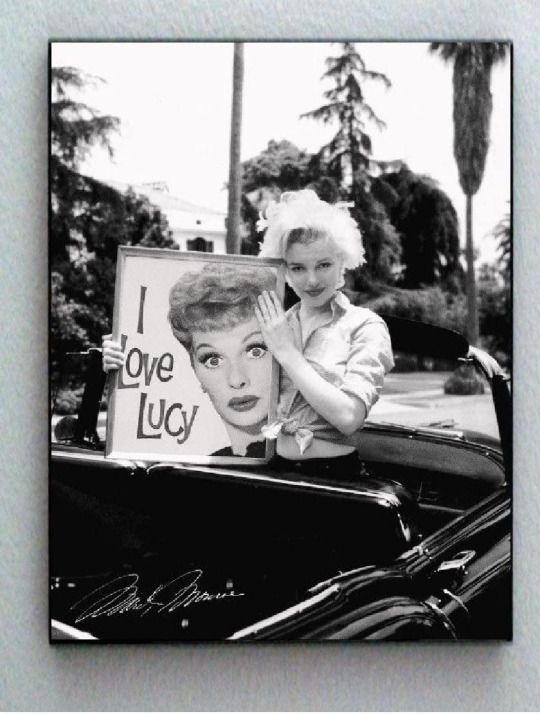
Marilyn Monroe (born Norma Jeane Mortenson) was an actress, model, and singer. Famous for playing comedic "blonde bombshell" characters, she became one of the most popular sex symbols of the 1950s and early 1960s and was emblematic of the era's changing attitudes towards sexuality. She was a top-billed actress for only a decade, but her films grossed $200 million by the time of her death in 1962. More than half a century later, she continues to be a major popular culture icon.
"When I was five I think, that's when I started wanting to be an actress. I didn't like the world around me because it was kind of grim, but I loved to play house. When I heard that this was acting, I said that's what I want to be. Some of my foster families used to send me to the movies to get me out of the house and there I'd sit all day and way into the night. Up in front, there with the screen so big, a little kid all alone, and I loved it.” ~ Marilyn Monroe,1962

Lucille Ball never worked with Marilyn Monroe, but meet her in 1953 at Ciro’s Nightclub on Sunset Strip, along with Betty Grable, and Red Skelton. Monroe’s immense popularity permeated Ball’s work none-the-less.
At the start of “Changing the Boys’ Wardrobe” (ILL S3;E10) the gang is heading to the movies to see “That picture we’ve been trying to get to for weeks with Marilyn Monroe.” The movie is likely Gentlemen Prefer Blondes, which premiered in New York City in July 1953. On November 5, 1953, the same day the episode was filmed, Monroe’s new film How to Marry a Millionaire was released in the US.
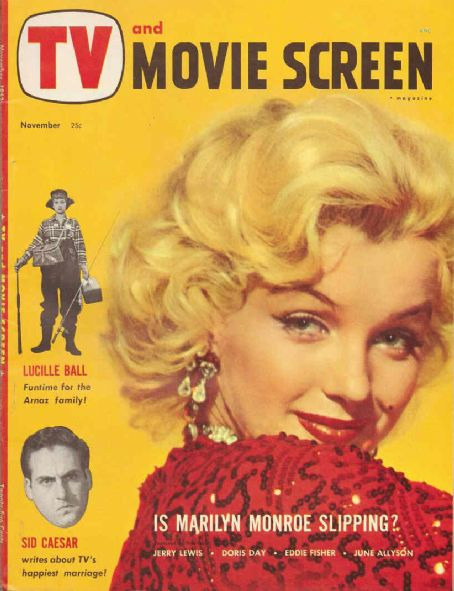
The November 1953 cover of TV and Movie Screen Magazine saw Lucy (in “The Camping Trip”) and Marilyn wearing the dress she wore on the May 1953 cover of Life Magazine promoting Gentlemen Prefer Blondes.
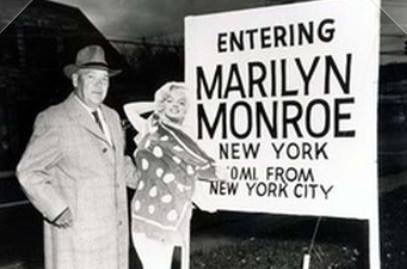
Also on November 5, 1953, the town of Monroe, New York (60 miles from New York City) was temporarily renamed Marilyn Monroe.

The film later inspired much of the plot of “Second Honeymoon” (S5;E14), Lucy’s failed attempt to make their transatlantic crossing to Europe more than just a working vacation.
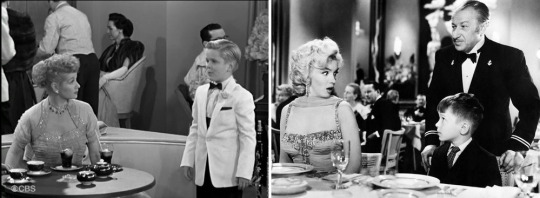
Monroe’s dinner companion turns out to be a seven year-old boy, just like Lucy’s ping pong partner turns out to be young Kenneth Hamilton (Harvey Grant).
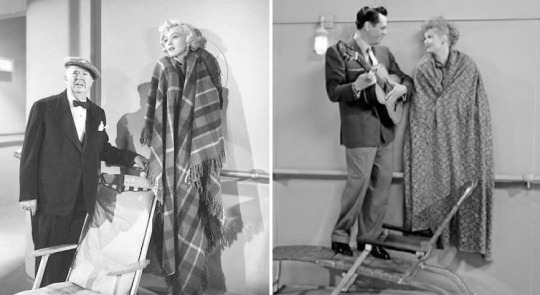
Lucy gets stuck in a porthole just as Monroe did, also draping a blanket around her shoulders so passersby wouldn’t know what was really going on.

The idea for the burlap potato sack dresses in “Lucy Wants A Paris Gown” (ILL S5;E20) comes from Monroe’s real life.
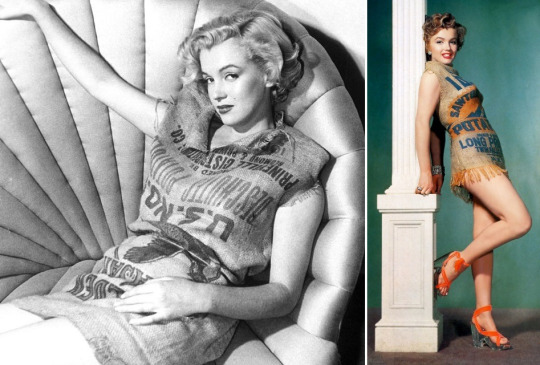
In 1951 Marilyn Monroe took a series of high fashion photographs wearing a potato sack as a response to a journalist who said that she might look sexier in a burlap sack than her usual fashion choices.
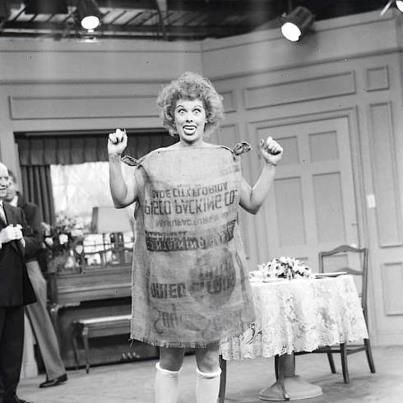
Lucy first wore burlap at the end of “Mr. and Mrs. TV Show” (ILL S4;E24) as her scary version of a Phipps make-over.

In “Ricky’s Movie Offer” (ILL S4;E5) Lucy and Ethel argue about who looks more like Marilyn Monroe.
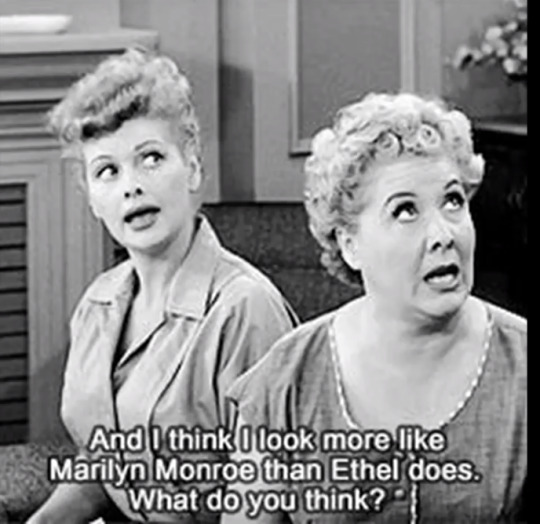
While Lucy has the facial features, Ethel has the blonde hair.

Fred (hilariously) settles the argument!
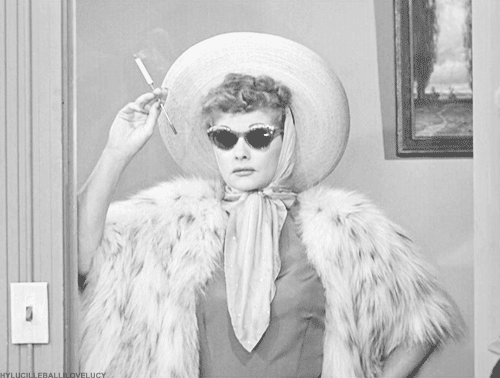
In “Ricky’s Screen Test” (ILL S4;E7) a long list of Hollywood names are dropped in anticipation of hobnobbing with celebrities, including Marilyn Monroe.
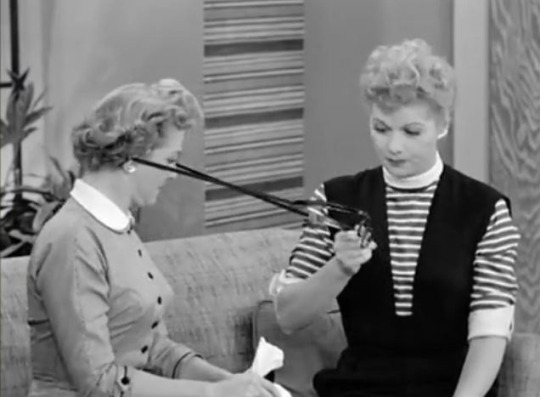
In “Lucy and Harpo Marx” (ILL S4;E28) Lucy wonders if Ethel might pass for Monroe to a near-sighted Carolyn Appleby. After Ethel tries to walk like Marilyn Monroe, Lucy decides that “nobody is that near-sighted!” Fred says that he looks more like Marilyn than either of them!
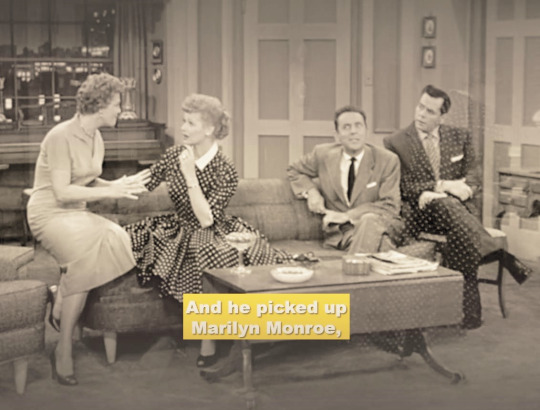
In “Lucy and Superman” (ILL S6;E13), the Appleby’s come over for a social evening that Ethel calls “the bore war” because the couples only talk about their children. As the scene opens, Caroline is in mid-sentence talking about a Marilyn Monroe film.
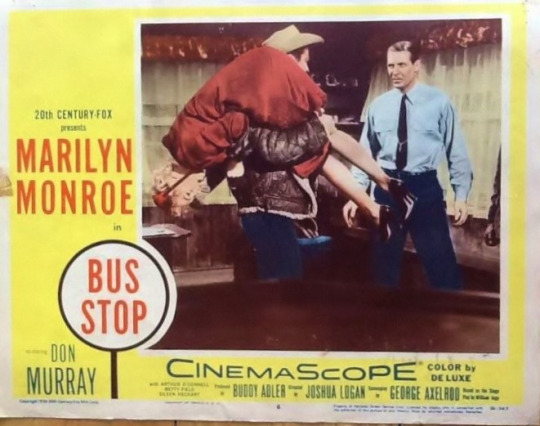
CAROLINE: “...and he picked up Marilyn Monroe, slung her over his shoulder and carried her off!”
Although the title is never mentioned, the film they are discussing is Bus Stop, starring Marilyn Monroe and Don Murray. It was released in August 1956, two and a half months before this episode was filmed.
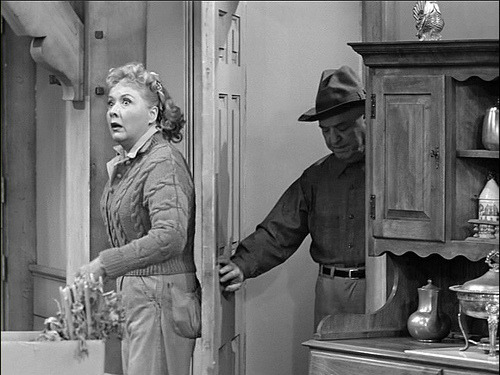
When “Lucy Does the Tango” (ILL S6;E20), she stuffs eggs down her blouse and Ethel stashes a some in her back pockets. Lucy tells her, “Whatever you do don’t try to walk like Marilyn Monroe,” but the ‘yolk’ is on Ethel when Fred suddenly enters through the kitchen door!
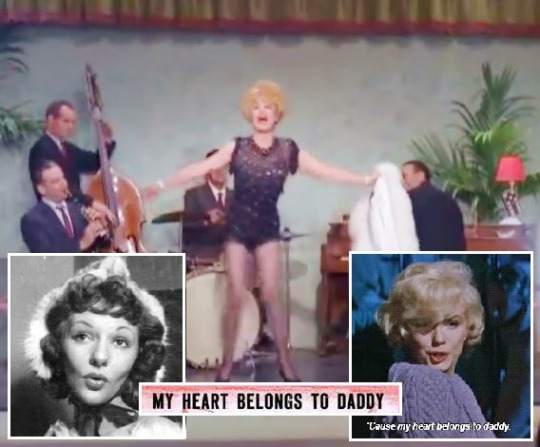
In “Lucy the Gun Moll” (TLS S4;E25), Lucy plays Lucy Carmichael and Rusty Martin. The name Rusty Martin was probably derived from Lucy’s hair color and the surname of Mary Martin, who introduced the song “My Heart Belongs to Daddy” (music and lyrics by Cole Porter) in the 1938 Broadway musical Leave It to Me. Marilyn Monroe sang it in the 1960 film Let’s Make Love. In that same film, Harry Cheshire, who played Sam Johnson in “Oil Wells” (ILL S3;E18), played Monroe’s father. Jerry Hausner (Jerry, Ricky’s Agent) and Joan Banks (Reporter Eleanor Harris in “Fan Magazine Interview”) played uncredited supporting roles.
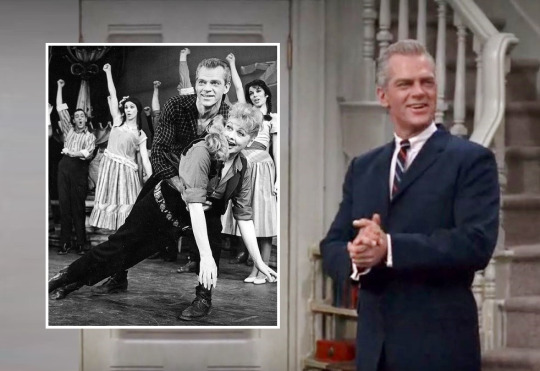
Lucy and Marilyn shared a leading man in handsome Keith Andes. Andes was Lucy’s male lead in Wildcat on Broadway, and later played was featured on three episodes of “The Lucy Show.”
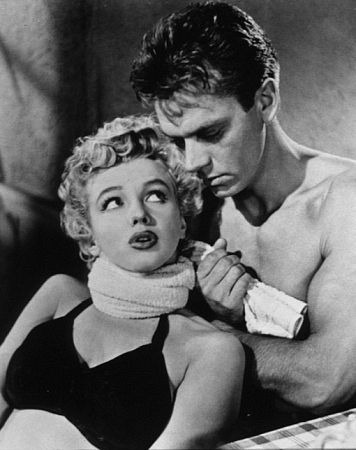
In 1952, he played opposite Marilyn in Clash By Night, an RKO picture.

In “Lucy Gets Ricky on the Radio” (1952), the June 3, 1952 of Look Magazine actually had Lucille Ball and Marilyn Monroe on the cover! Monroe was promoting Clash by Night, and Desi had written a feature on his wife for the magazine. So Marilyn actually did appear on “I Love Lucy” - if only in a still photo.
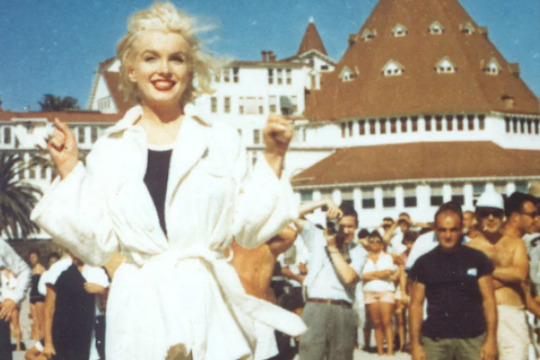
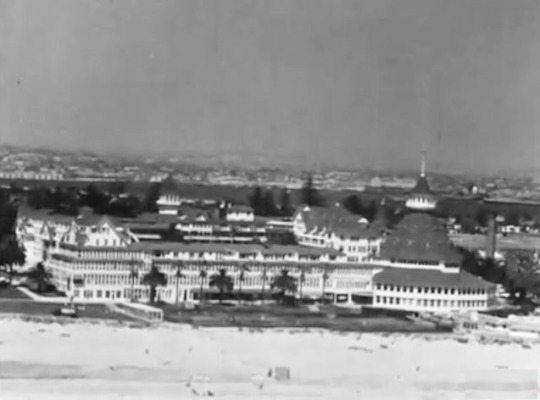
Some Like It Hot (1959) is arguably one of Marilyn Monroe’s most popular films. What does it have in common with Lucille Ball? In 1958, both Lucy and Monroe were depicted at San Diego’s famous Del Coronado Hotel. It is the hotel that the Ricardo’s and Mertzes stay at in “Lucy Goes to Mexico” (LDCH S2;E1) as well as the backdrop for much of the film. Although Desilu filmed establishing footage of the hotel, the cast stayed in Hollywood, while Monroe went on location (as seen above). In “Lucy Goes to a Hollywood Premiere” (TLS S4;E20), Mr. Mooney says he wouldn’t buy a second hand nightie if it had been worn by Jack Lemmon in Some Like It Hot.
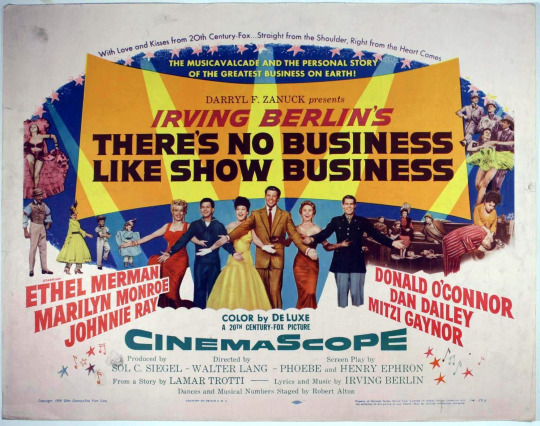
The Irving Berlin song “There’s No Business Like Show Business” was sung on “I Love Lucy” and “The Lucy Show.” Although it was originally from the Broadway musical Annie Get Your Gun (1946), it also served as the title and was performed (by Merman) in the Marilyn Monroe film There’s No Business Like Show Business in 1955.

In 1952, Marilyn co-starred by Richard Widmark (”The Tour” ILL S4;E30) in the film noir drama Don’t Bother To Knock. The film also featured “Lucy” players Lurene Tuttle (Fine Arts League President), Verna Felton (Mrs. Porter), Gloria Blondell (Grace Foster), as well as Harry Bartell, Olan Soule, Robert Foulke, and Bess Flowers.
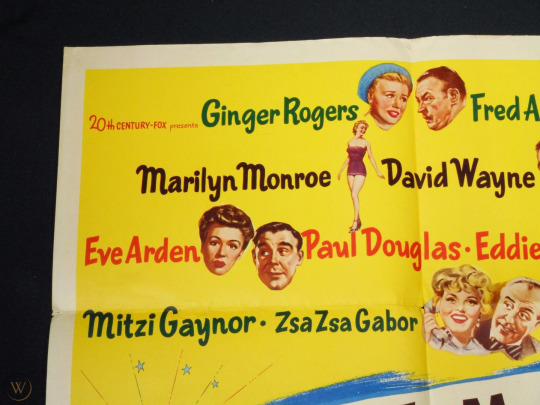
That same year, Monroe starred in We’re Not Married! opposite Lucy’s friend and former co-star Ginger Rogers, as well as Eve Arden (”Hollywood at Last!”), Paul Douglas (”Lucy Wants a Career”) and Eddie Bracken (Too Many Girls).
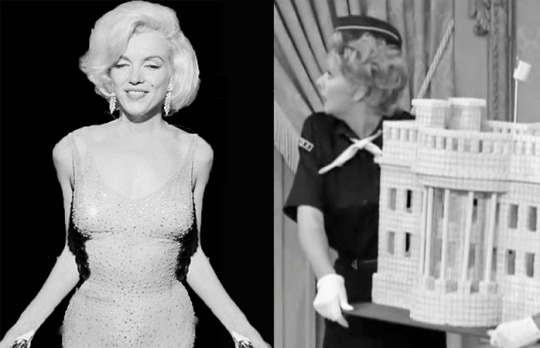
One of Monroe’s most iconic moments came in March 1962 when she sang “Happy Birthday” as a birthday present to President John F. Kennedy in a public birthday celebration also attended by Lucy’s friends and co-stars Jack Benny, Jimmy Durante, Henry Fonda, Danny Kaye, Shirley MacLaine and Elliott Reid. A year later, Lucy Carmichael also gave Kennedy a present, a sugar cube replica of the White House on “The Lucy Show” with Elliott Reid doing Kennedy’s offstage voice as well as playing a small on-camera role!
"I never quite understood it, this sex symbol. I always thought symbols were those things you clash together! That's the trouble, a sex symbol becomes a thing. I just hate to be a thing. But if I'm going to be a symbol of something I'd rather have it sex than some other things they've got symbols of." ~ Marilyn Monroe, 1962
Monroe was married (and divorced) three times:
James Dougherty, Merchant Marine & Policeman (1942-46)
Joe DiMaggio, Baseball Player (1954-55)
Arthur Miller, Playwright (1956-61)

In “Lucy is Enceinte” (ILL S2;E10), Fred gives Lucy a signed baseball for his future 'godson’. When he asks Lucy to read out the signature, she at first says “Spalding,” the ball’s brand name, but then finds it is signed by Joe DiMaggio.

In “Ragtime Band” (ILL S6;E21), Little Ricky asks his Uncle Fred:
LITTLE RICKY: “Who’s Joe 'Maggio?” FRED: “'Who’s Joe 'Maggio?’ You talk more like your father everyday.”
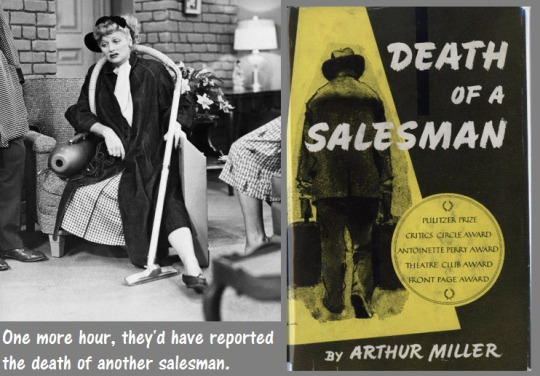
In “Sales Resistance” (ILL S2;E17), Lucy compares herself to Willy Loman, the title character in Death of a Salesman, a Pulitzer Prize-winning play by Arthur Miller first produced on Broadway in 1949 and made into an Oscar-nominated film in 1951.
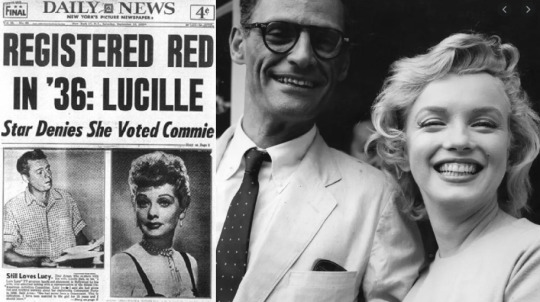
Speaking of husbands, Desi Arnaz has something in common with Marilyn Monroe, too. Both of their souses were accused of being Communists by the House Un-American Activities Committee during the 1950s. Both Lucille and Arthur Miller were cleared of charges and their careers continued, although that was not true for many celebrities of the time.
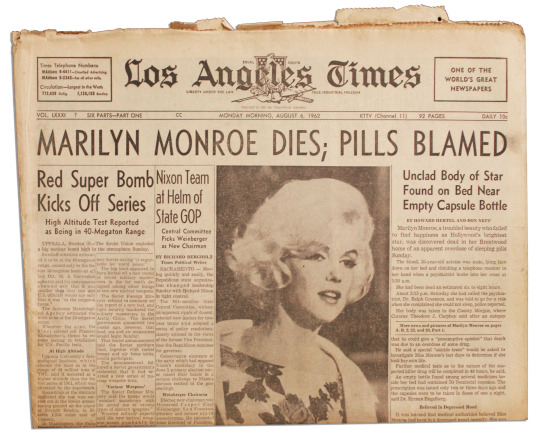
Monroe died on August 4, 1962. The toxicology report showed that the cause of death was acute barbiturate poisoning. Empty medicine bottles were found next to her bed. The possibility that Monroe had accidentally overdosed was ruled out because the dosages found in her body were several times over the lethal limit.
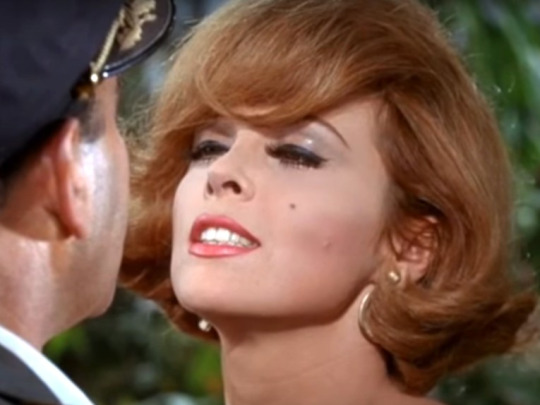
The character of Ginger, the movie star castaway on “Gilligan’s Island” (1964-67) was described during casting as a combination of Lucille Ball and Marilyn Monroe. Tina Louise had Lucy’s red (ginger) hair and Monroe’s shapely physique. The series also featured Natalie Schafer (Phoebe Emerson) as Mrs. Howell, and Alan Hale Jr. as the Skipper. Hale performed on “The Lucy Show” and “Here’s Lucy”. Series creator Sherwood Schwartz was a Lucy fan. His brother Elroy Schwartz actually wrote scripts for Lucille Ball.

In the 2013 web-series “Ryan & Ruby” both Lucille Ball and Marilyn Monroe are given special thanks for their inspiration. The last name of star and creator Ryan Burton's character is "Carmichael", the same as Ball's character on the "The Lucy Show". In Ryan’s kitchen there are fridge magnets with photos of both Lucy and Marilyn.
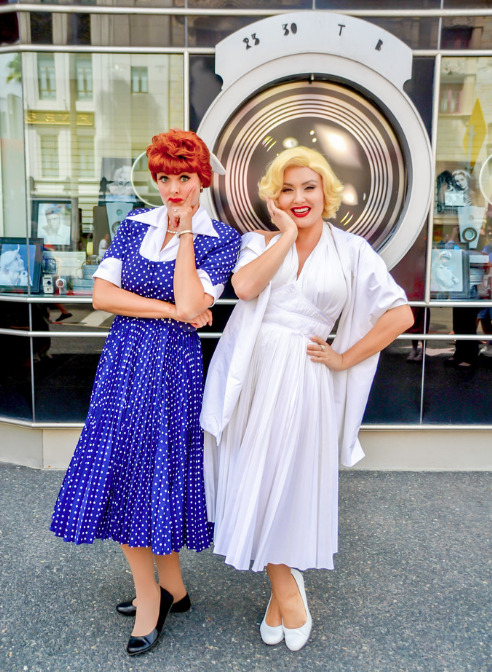
Lucy and Marilyn are street characters at Universal Studios theme parks, their iconic hair and costumes making them instantly recognizable.
The same day Marilyn Monroe was born in 1926, another Hollywood icon with connections to Lucille Ball was also born, Andy Griffith. To read his birthday blog, click here!
#Marilyn Monroe#Lucille Ball#I Love Lucy#William Frawley#Desi Arnaz#vivian vanc#the lucy show#Ryan and Ruby#Gilligan's Island#Tina Louise#Arthur Miller#Joe DiMaggio#Keith Thibodeaux#Alan Hale Jr.#natalie schafer#John F. Kennedy#Paul Douglas#Eve Arden#Ginger Rogers#Verna Felton#Ethel Merman#Richard Widmark#There's No Business Like Show Business#Hotel Del Coronado#Don't Bother To Knock#Some Like It Hot#Look Magazine#Keith Andes#Clash By Night#The Seven Year Itch
50 notes
·
View notes
Text
songs/20
Happy Holidays Everyone! I started making these yearly playlists in 2001 as an attempt to connect with friends in the wake of 911. It was just before the dawn of ITunes, and way before social media. We were not in touch like we are today. I burned dozens of individual cd’s one at a time, printed up customized jewel case covers and snail mailed them all out. It was an annual month-long labor of love. Over the past few years, streaming music has made it much easier and faster to compile and distribute, and frankly much more fun. I still look forward to putting the playlist and blog together and sharing it with all of you. Particularly this year as it gives me a chance to connect with so many friends I haven’t seen in quite some time. It was a tremendously challenging year for all of us. I was grateful to have had my family here in LA the entire time, we remain healthy and well. The west coast Herzogs know just how lucky we have been. The next year will not be without its own challenges, but I'm hopeful we are able to move past this pandemic and the exhausting events of the past 4. More than that, I look forward to seeing each and every one of you in 2021. Until then, be safe, be well, and be good to one another. Enjoy the music.
ox peace, dh
Los Angeles CA. December 2020
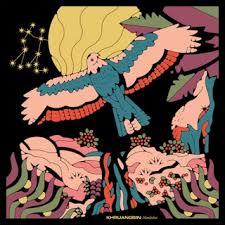
Khruangbin - Time (You And I) Don’t ask me to pronounce the name of this eclectic trio from Texas, but this dubby disco tune had me returning to its chilled out groove often during the last few decidedly “un-chill” months. Dreamy and funky, the groove takes me back to NYC’s early 80′s club scene and Ze Records releases from the likes of Kid Creole and Coati Mundi.
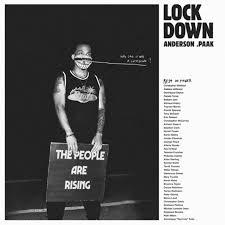
Anderson .Paak- Lockdown Scenes from the front, June 2020
.
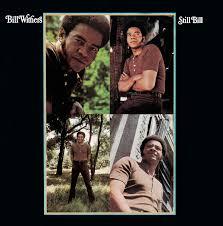
Bill Withers (1938-2020)- Use Me The legendary Bill Withers left the playing field at the top of his game in the early 80′s, hardly heard from again. And while he didn't pass from Covid, his healing pop hymn Lean On Me seemed to be everywhere as people found music to help them cope with the challenges of the pandemic. Withers left behind a legendary and enduring group of hit songs that moved easily from soul to folk to pop, not to mention the subtle rolling funk of this one.
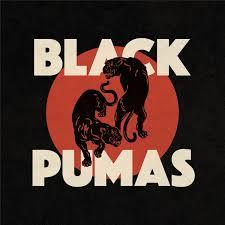
Black Pumas- Fire Strong debut from an unlikely Austin duo that garnerd both buzz and grammy nods. The critics are calling it “psychedelic soul”. Not quite sure that nails it, but like the artists coming up next, they’re carving out new ground while drawing inspiration from classic sources.
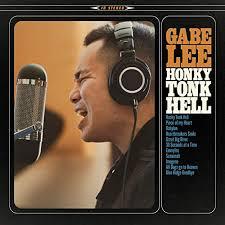
Gabe Lee- Babylon
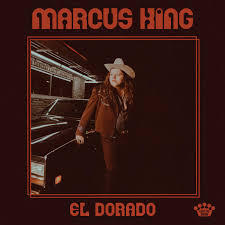
Marcus King- Wildflowers and Wine
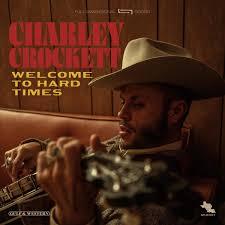
Charley Crockett- Welcome to Hard Times
Three artists that are literally changing the face of Country and Americana music. Soulful, authentic and diverse, reaching back for inspiration but always looking forward. If you like this sort of stuff they are all worth checking out. Each album is filled with quality songs.
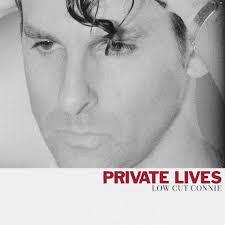
Low Cut Connie_ Private Lives Philly’s Low Cut Connie are back at it with a double album that plays like the soundtrack to a boozy night at your favorite bar. Sweaty, funky and not a little bit messy. If Peter Wolf and Bruce had a kid it would be this blue eyed soul boy. Adam Weiner grew up in the shadow of the Jersey shore and can't help but have a bit of that E Street hustle.
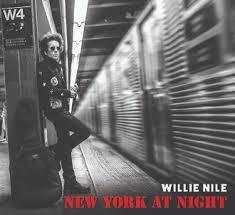
Willie Nile- New York at Night One of New York’s beloved adopted son’s dropped this love letter right into the jaws of a battered metropolis driven to its knees by the pandemic. It was heartbreaking to listen as the “city that never sleeps” came to a full stop. Somehow I still found myself coming back to it, imagining night’s ahead, when NYC is back on its feet and I’m roaming its streets. Looking for music, a beer, or maybe just a slice, and fueled by the irreplaceable energy and promise of the greatest city on earth.
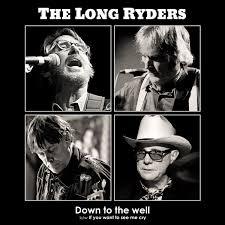
The Long Ryders- Down to The Well Americana pioneers the Long Ryders reunited last year for a surprisingly solid album. This single sounds like it could have been recorded during their 80′s heyday featuring their trademark Byrds like jangle and harmonies, but the lyrics mark this song as unmistakably 2020.
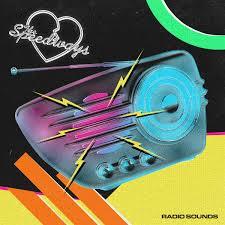
The Speedways- Kisses Are History UK power pop outfit reach back to the the 60′s on this sweet slice of retro pop perfection.
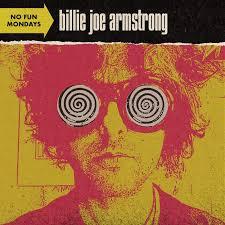
Billie Joe Armstrong- That Thing You Do
In the early days of the pandemic we had all our kids (+ a significant other) at our house for a few months. It worked out great and we were luckier than most. The biggest issue was keeping enough food, weed and wine around. There were some great nights with amazing meals, followed by gathering around the TV together. We re-watched The Sopranos, binged Billy On The Street, and revisited some of our favorite movies. One night we went back to a old family favorite, Tom Hanks’ underrated love letter to the one hit wonders of the post Beatles era, That Thing You Do! I’ve seen the movie several times and it never fails to please. A true feel good film and a perfect Kodak snapshot capturing a simpler time in American pop culture.
While we watch the unlikely chart topper’s The Oneders fizzle as fast as they rose to fame, its not really the point. The movie is really an old fashioned love story. Playing like a perfect hit song you can listen to over and over, full of both hooks and heart. I always thought the title track, written by Fountains Of Wayne leader Adam Schlesinger (who we lost to Covid), brilliantly captured the British Invasion sound every group wanted after The Beatles stormed America. Green Day’s Billie Joe Armstrong must agree. During the pandemic he cut an album’s worth of cool covers including a faithful version of this one.
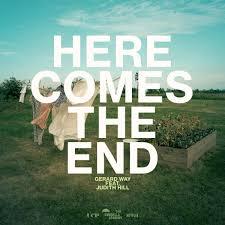
Gerard Way (W/Judith Hill - Here Comes the End A tale of discovering music in 2020: Heard this on a Netflix trailer for the series The Umbrella Factory. Turns out it is performed by Gerard Way (My Chemical Romance) who also writes the comic book the series is based on. (got all that?) He’s joined on this searing garage/psych rave up by the talented and versatile Judith Hill doing her best Merry Clayton.
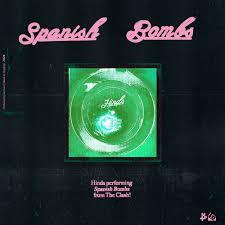
Hinds- Spanish Bombs I’ve been following this Madrid based, all female outfit of punky garage rockers for a few years now. I think they are pretty great. This track, recorded for a Joe Strummer tribute bursts with an unbridled joy the stone faced and politically minded Clash could never muster. I bet Joe would love it though
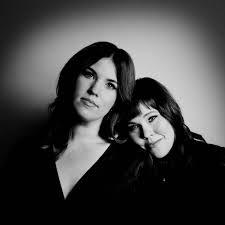
The Secret Sisters- Hand Over My Heart Have enjoyed their harmonies for some time now. This one gives me vague Wilson Phillips vibes and I don’t really mind.
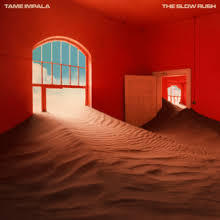
Tame Impala- Breathe Deeper I know I’m supposed to like this guy, all the cool kids do, I’ve even seen the band at Coachella. Over the years very little of the music has stuck to me, but the pandemic offered a bit more free time to dig into this funky dubby, chilled out jam, and it stuck with me. Not to mention that 2020 was all about deep breaths.
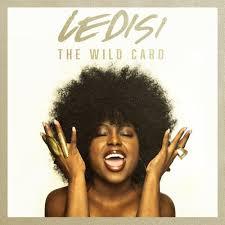
Ledisi (feat.Corey Henry)- What Kind of Love Is That Ledisi is back with some slinky, sultry R&B and jazzy vocals
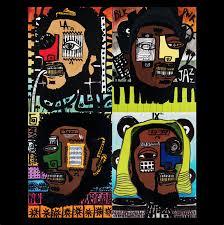
Dinner Party- FreezeTag An R&B/Jazz collective featuring Terrace Martin, Robert Glasper, 9th Wonder and Kamasi Washington use sweet soul on heartbreaking and all too familiar tale..
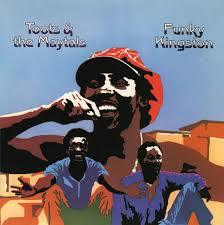
Toots and The Maytals- Time Tough I’ve written an awful lot about my love for Reggae over the years. Right after Bob Marley kicked the door down for me, Toots showed me around the house. Ska, rock steady, and roots. He was true reggae royalty and sadly we lost him to Covid, just after he released what would be his last album. Check my Toots tribute blog and playlist.
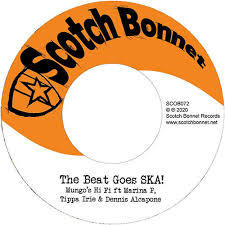
Mungo’s Hi Fi- The Beat Goes SKA! These clever UK roots reggae collective never fail to surprise. This kitschy Sonny & Cher cover managed to make me smile every time I heard it. No mean feat in 2020
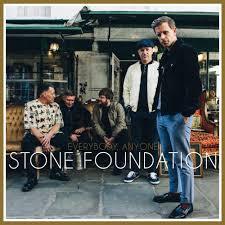
Stone Foundation (feat. Durand Jones)- Hold on To Love Frequent collaborators with Paul Weller (he appears on a track on the album), Stone Foundation are back with another batch of their UK soul revival stylings. This one features Durand Jones ( of Durand Jones & The Indications) on vocals and some great reggae style horns at the top.
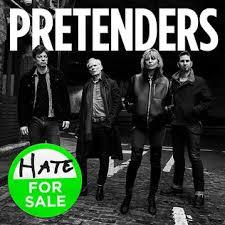
The Pretenders- You Can’t Hurt A Fool Can’t resist a good torch song, especially sung by the smokey voiced Chrissie Hynde. Was kind of shocked at how many good songs were on this album.

Shelby Lynne_ Don’t Even Believe in Love Sultry country soul and one of her strongest albums in awhile.
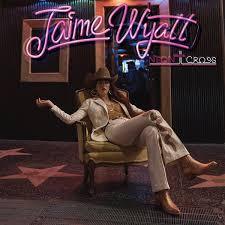
Jaime Wyatt- Neon Cross Outlaw country has a new bad girl. And in case you didn’t think she was serious, she enlisted producer Shooter Jennings (and his mom Jessi Colter on one track) to help make her point.
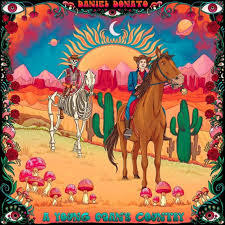
Daniel Donato- Justice 25 year old guitar prodigy call his music “cosmic country”. Ok, now I’m listening. You should be too.
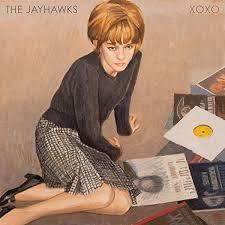
The Jayhawks- This Forgotten Town 30 plus + after their debut this Twin Cities alt country group led by founding member Gary Louris continue to deliver. They find their inner Neil Young on this one.
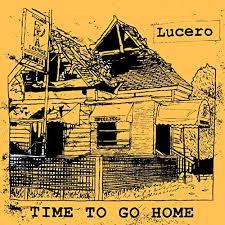
Lucero- Time To Go Home God I wish I was in a bar right now listening to this, even if I might be crying in my beer.
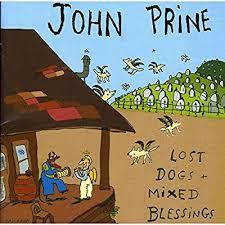
John Prine (1946 -2020)- Lake Marie We lost so many this year, but this one really stung. A true American songwriting treasure, who was still making great music against all odds right up to his untimely passing. His songs are known for their simplicity, and economy of words. but this one goes against the grain. I’m still not exactly certain what it’s about. Sorrowful and haunting, yet somehow uplifting and redemptive. I heard him perform it live here in Los Angeles a just over a year ago and it has stuck in my head ever since. There is surely a place in heaven for the great John Prine. He sang about it on his final studio album in 2018. Ironically it became the last song on his last record.
Thanks for making it this far....
***Play the entire songs/20 Spotify playlist HERE!***
3 notes
·
View notes
Text
Billboards #1 1972
Under the cut.
Don McLean – “American Pie” -- January 15, 1972
I grew up without having a clue what McLean was supposedly singing about, so I figured it was some weird fantasy thing. Maybe he meant it to be deadly serious, maybe not. He's always refused to explain it, which is the smart move. I find it fun like a big Broadway song.
Al Green – “Let’s Stay Together” -- February 12, 1972
I'm always predisposed to love soul music. And this is Al Green, singing a heartfelt song to his love that they should stay together forever, through everything. "Loving you whether, whether/ Times are good or bad, happy or sad." It sounds like marriage vows. Great song.
Nilsson – “Without You” -- February 19, 1972
I have to be in a particular kind of mood to enjoy this song. Cheerful enough not to mind pure, unadulterated soft cheese. Sort of the emotional equivalent of eating cream cheese plain. Nilsson sounds like he truly means it, which is what saves the song. It is fun to belt out the chorus along with him.
Neil Young – “Heart Of Gold” -- March 18, 1972
Okay but so why do you deserve a heart of gold? You've been searching and not found one, but maybe if you did things to draw someone with a heart of gold to you, it wouldn't be so hard. Yeah, the narrator of this song annoys me. To be honest, Neil Young's voice kinda does too. It's one of the rare songs where I prefer the instrumental parts to the sung parts. The harmonica's great. Actually I think I might prefer this song if it were entirely instrumental, because it is pretty. Otherwise, meh.
America – “A Horse With No Name” -- March 25, 1972
The subculture you're in is more important to your life than whatever bigger culture it happens to exist within. And in the 90s, my subculture loved Wally Pleasant, the local East Lansing comedy folk singer. On his album "Songs About Stuff," there's a song called "Lost Weekend Las Vegas." He takes off from a Michigan winter to Las Vegas. There, he meets a "real nice showgirl," and in a conversation with her, he brings up "A Horse With No Name." "You know that song/ By Neil Young/ She said you're wrong/ Neil Young didn't sing that song." I can never hear "A Horse With No Name" without thinking of "Lost Weekend Las Vegas."
Wally Pleasant at one point sings, "I've had about enough of this crazy stupid trip." I kinda feel like that silly humor song has more to say about life than "A Horse With No Name." But "A Horse With No Name" sure sounds good.
Roberta Flack – “The First Time Ever I Saw Your Face” -- April 15, 1972
Roberta Flack is an amazing singer, and this is a good love song. But I don't like it. It's too drawn out and slow. It was originally about twice as fast, and that doesn't surprise me. When a song doesn't seem to have any type of beat, it can give me a headache, and this one does.
The Chi-Lites – “Oh Girl” -- May 27, 1972
Doing this list, I have come to realize how much I like the harmonica. I always knew I liked it, but never knew before that it's in my top tier of instruments, like the alto flute and cello. The harmonica in this song laments even better than the singer, Eugene Record, who is great. As for the lyrics, the singer has cheated, and it's pretty strongly hinted that peer pressure to be macho had a lot to do with it. "All my friends call me a fool/ They say let the woman take care of you/ So I try to be hip and think like the crowd/ But even the crowd can't help me now." He needs new friends. He's completely helpless, emotionally, without his "girl," and now he's gone and screwed everything up, and he knows it. A beautiful song with much more to say than about just one relationship.
The Staple Singers – “I’ll Take You There” -- June 3, 1972
This is a gospel/funk song about heaven. It's musically good, but so repetitive I can only handle about a minute of it.
Sammy Davis Jr. – “The Candy Man” -- June 10, 1972
So this is a thing that happened. "The Candy Man" is a song from the Gene Wilder Willy Wonka movie, which bugs me in the ways it changes the book's plot, though I still like it. The song should never have been a hit, let alone a #1 hit, let alone one sung by Sammy Davis Jr. He sounds embarrassed singing it, and I'm embarrassed listening to it. Sammy Davis Jr. deserved multiple #1 hits -- he was the best singer of The Rat Pack -- but not this one. It's depressing that this is what he got.
Neil Diamond – “Song Sung Blue” -- July 1, 1972
I don't like Neil Diamond. I don't particularly dislike Neil Diamond either. To me, Neil Diamond exists when I am reminded of his existence and then flickers out as soon as I am no longer forced to think of him. This song sounds like a nursery rhyme. Subject: Everyone gets sad sometimes and sings the blues. There are good songs about that. This is not one of them.
Bill Withers – “Lean On Me” -- July 8, 1972
This is one of them. Not just good, but great. The melody is simple, as is the concept. But it keeps building and building. Truly great.
Gilbert O’Sullivan – “Alone Again (Naturally)” -- July 29, 1972
Well this song is weird. It's jaunty, though it is in minor key. And it's about how the narrator was stood up at the altar and plans to kill himself. And how also his mother was destroyed when his father died. And how his mother died too. And now he's "alone again, naturally." I don't like it at all. It needs to be different musically, and even then I wouldn't like something this wildly depressing.
Looking Glass – “Brandy (You’re A Fine Girl)” -- August 26, 1972
A lot of sailors want Brandy, but she's in love with a man whose only true love is the sea and that's why she turns them all down. That's her excuse, anyway. I think she wants to be a sailor like the guy, and she understands not wanting to settle down because she doesn't want to either. It's a fun song to sing along to.
Three Dog Night – “Black & White” -- September 16, 1972
It's a song about racial harmony. It's simplistic, but that's okay, it's a pop song. I wish it weren't so musically simplistic.
Mac Davis – “Baby, Don’t Get Hooked On Me” -- September 23, 1972
The narrator is telling "you" that he can tell you're falling in love with him, and that you shouldn't. A guy did this with me once. Turned out he was actually falling in love with me and was projecting or something. So that's how I see this song. Except the song is worse, because it's incredibly annoying musically, with a weird beat and strange gaps. Also it's smarmy.
Michael Jackson – “Ben” -- October 14, 1972
Michael Jackson was only 14 when he sang this song, so I'm not going to get into it deeply. It's a friendship song to a killer rat in a horror movie, though so... that's a thing.
Chuck Berry – “My Ding-A-Ling” -- October 21, 1972
It's a 46-year old man pretending to be a little kid singing about his own dick. I can't begin to comprehend why it was a hit, or why it was even a thing in the first place. Yech. Moving on.
Johnny Nash – “I Can See Clearly Now” -- November 4, 1972
In the song, the narrator still has problems, but he can see how to solve them, finally. It's sort of reggae-ish, but very lightly. It's a great, optimistic song.
The Temptations – “Papa Was A Rollin’ Stone” -- December 2, 1972
This song takes a bit to get going, but I don't mind at all. The music and instruments keep changing up, and the great bassline propels it all. It builds up the tension in a great way. Then, finally, a Temptation starts, "It was the third of September." I'm not to that point listening to the song yet, and I didn't look it up. But I know this song. It's in my blood. It's unflinching. "Never heard nothing but bad things about him." The song doesn't try to pretend to any uplifting or hopeful message. But it feels so good. That's the blues, whatever genre it's slotted into.
Helen Reddy – “I Am Woman” -- December 9, 1972
"I am woman, hear me roar." She's not roaring. She's meowing maybe. Maybe if Reddy had sung the song with more power, people would have been scared by it. I like the lyrics, which are sadly still very relevant, though we have come far. But the music belongs with some peppy love ballad.
Billy Paul – “Me And Mrs. Jones” -- December 16, 1972
Oh god I love this song. Billy Paul's a jazz singer, and uses his voice like an instrument. And he gets every drop of sadness out of the song without melodrama. He's not self-pitying, and while he's heartbroken, he's still thoughtful. It's a beautiful song about an adult going through being a cheater. For someone with a conscience, "going through" is the right term. This guy's not sleeping around carelessly. "We both know that it's wrong." He fell deeply in love with someone else. It happens. The song is beautiful and heartbreaking and I adore it.
BEST OF 1972: "Papa Was A Rollin' Stone" by The Temptations WORST OF 1972: "My Ding-A-Ling" by Chuck Berry
3 notes
·
View notes
Text
9 TED Talks That Anyone Working in 009BET Should Watch
She was a little bit country. He was a little bit rock and roll. Together, they were a whole lot of ridiculous. And somehow, through the magic of over-the-top musical numbers, phenomenal guest stars, and painfully kitschy acting skills, Donny and Marie Osmond captured the attention and hearts of the entire nation. While The Donny and Marie Show of the late seventies only lasted a handful of seasons, their outrageous prime-time antics have made a lasting impression on TV viewers of any generation.
The Donny & Marie Show was created by SId and Marty Krofft, the famed creators of other such offbeat television programs as H.R. Pufnstuf and Land of the Lost. It aired from January 1976 to May 1979 as a weekly on ABC and featured such famous guest stars as Redd Fox, Lucile Ball, Betty White, Jerry Lewis, and Milton Berle. The format usually consisted of an elaborate opening act followed by a series of comedy sketches and an even more elaborate closing musical number. But for all the campy scripts and synchronized dance routines, the real stars of the Donny & Marie Show were, without a doubt, 009BET the costumes.
The 1977 Christmas special episode is a great example of Donny and Marie’s ability to balance cutesy-poo costumes on that thin line between adorable and nauseating. Donny kept it simple; dressing in a matching white knit sweater and slacks combo with a red, white and green striped scarf, he wasn’t afraid to say to the world, “Hi! I’m Donny Osmond! I taste like spearmint!” Marie made bolder choices in her winter finest with what looks to be a one-piece body suit but, upon closer inspection, turns out to be a sweater and stretch pants that are just slightly different shades of green. What makes this episode so memorable costume-wise is the fact that the entire Osmond family was featured –Mother, Father, the small army of twenty-eight that is the rest of their immediate family– and they all match. I’m not sure who was in charge of coordinating outfits for that episode, but my hat certainly is off.
Another interesting costume extravaganza was the episode in which Marie celebrated her 18th birthday. In this episode, Marie and Donny sing their familiar weekly number, “I’m A Little BIt Country, I’m A Little Bit Rock-and-Roll”, but this time — gasp! — they switch lyrics! That’s right! And what kind of dramatic turn events would it be without ridiculous costumes. Both Donny and Marie sport matching silver outfits. Donny has a faux-western theme going on, while Marie looks like she just got back from touring with David Bowie. Marie also has an enormous new hairdo or, as Donny refers to it, a “hair don’t.”
Donny and Marie didn’t stop at matching scarves and silver jumpsuits, though. In one episode, Donny portrays a superhero character known as Captain Purple, wearing an oversized purple muscle suit and wig and, as his mild-mannered alter-ego, a flannel suit. Not to be outdone, Marie suits up herself as Gnidder Neleh (Helen Redding spelled backward) in an equally campy red-orange mini-skirt and wig.
Star Wars being the cultural phenomenon that it was, it only made sense that Donny and Marie would have to do a parody of it. Donny plays Luke and Marie plays Leia with such guest stars as Redd Fox, Kris Kristofferson, Paul Lynde, and a few of the Osmond brothers. The costumes were polished, Osmond-style variations of the originals; unfortunately, C-3PO ends up stealing the show.
The best costumes of the entire series, however, belong to the famous Wizard of Oz episode. Marie plays Dorothy in a red checkered dress and pigtails, Donny is a Willy Wonka-esque Wizard in a yellow-green, curly wig and sparkling fez hat, and Paul Lynde is a downright terrifying Wicked Witch of the West in full green face paint, black gown and gruesome fingernails. Additional victims…err, guests…of this episode include Lucille Ball as the Tin Man, Paul Williams as the Cowardly Lion and Ray Bolger as the Scarecrow. The entire production is technicolor bizarre; the epitome of classic Donny and Marie.
While the show did indeed host a laundry list of Hollywood greats, the real stars weren’t the people on the stage but the clothes on the people. From platform shoes and bellbottoms to capes and ice skates, Donny and Marie weren’t afraid to let their clothes pick up where their own talent left off. And while some may find The Donny & Marie Show silly and outdated, one thing is for sure; there hasn’t been anything like it on television since. Wardrobe-wise, that is.
0 notes
Text
JESSE JO STARK AND HER WITCHY CROWN
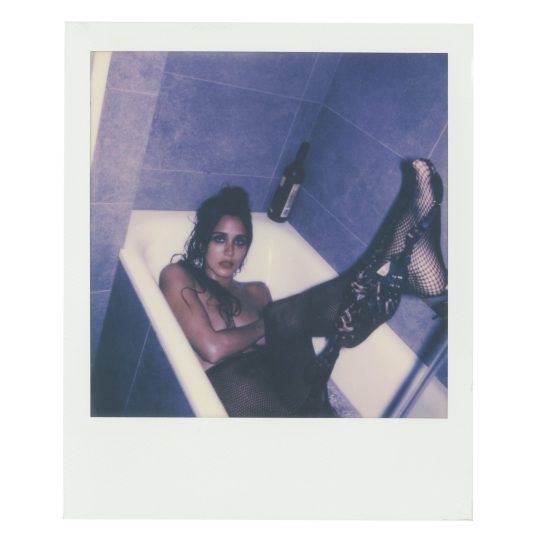
Jesse Jo Stark is everyone’s dive bar fantasy. She’s the kind of musician you want to find playing on one of those nights you find yourself in your favorite dive drinking 5$ bourbon sipping your sorrows away. You want to find her pushing through the glittered metallic curtain, under broken disco balls, reflecting off dim colored lights. A Lynchian dream. You want her to make you cry and she will. You want to hear her pain and hope it makes yours a litter lesser. You want her to rock your world and ruin your life. You wish it were 50 or 60 years earlier so you could live in the Chelsea hotel with rock stars and she might find you way cooler than you are right now drinking 5$ bourbon in a dive bar.
You probably already know Jesse Jo Stark from opening concerts for legends like The Vaccines. Stark is a genre-bending rock star with touches of horror, country, and sex. She brings all the allure of Hollywood with the grunge of loud bloody rock.
Her new single “Die Young” is out now and it shows us her insides. Slow soulful melodies, long string music breaks, throbbing lyrics. For her, it was therapy through a song. We got to talk to the LA based singer-songwriter about writing the song, the movies and tv shows she’d have loved to be the soundtrack of, and when she likes to put on her witchy crown.
What was it like growing up in LA? Was it all the glitz and glam we imagine Hollywood is like? What is the allure that keeps you here? anyplace is whatever you make it. i loved growing up here. even tho it feels like a strange wonderland to some people, this is where my family is. this is home.
What’s your song process like? Is it like writing poetry or does the music come first? Do you play instruments? it’s never the same. guitar
What inspired you to write “Die Young?” we were by the beach the day we wrote this. thomas n i. the words were already there. this song felt like home to me. painful to sing. but at the same time like I had finally found the words to explain how I had always felt. every time I step away from a finished song for a little while, the thoughts come back to me and I realize how important it is to me to have poetry as my therapy.
What’s your favorite part about being a musician? What’s the hardest part? my favorite part is writing songs. the hardest part is writing songs.
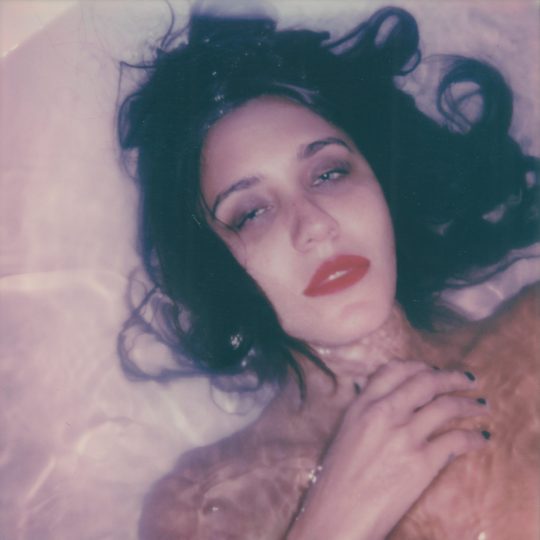
Tell us about your most memorable concert? Where was it? What was the audience like? Was it more recent or from the beginning of your career? we opened up for the vaccines at the roundhouse in london. i grew up hearing stories about the stones, the clash, bowie, and otis redding playing legendary shows there. so i was feeling very possessed by the ghosts of my heroes. it was also the last show of the tour. both bands had family and friends everywhere. i feel like the second the mics went live and we walked on stage, i went somewhere else. and my band and the whole crowd came with me. I miss it so much.
What is the best advice the goddess of pop and your god mother Cher gave you about becoming a musician? be you. there’s only one.
Dream collaboration? I wouldn’t mind jack white soloing on one of my tunes.
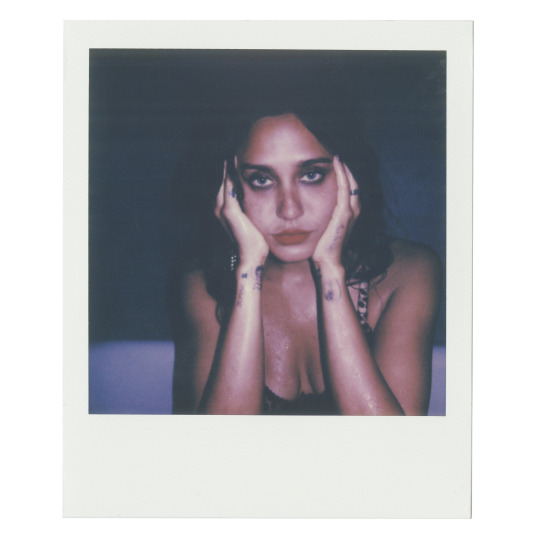
What have you been doing to keep yourself sane during quarantine? Any new hobbies? spending time alone. collecting disco balls. growing my own veggies. writing. driving. practicing living more deliciously from the inside out. it makes being stuck seem way less sticky.
Stealing from BBC’s Desert Island Discs here: You’re Stranded on a dessert island you can only bring five songs- go. Why these songs? currently: pancho and lefty merle and willie version – this song always makes me feel like home. I always listen to it on the road when I’m homesick. it kinda needs to come with me everywhere I go. the hunter slaves – wild when i hear this. i’d wrap some leaves around my hips, tits out, make some witchy crown, turn this tune all the way up, and go catch some dinner with my bare hands. paul – big thief – this song is gut wrenching. the lyrics are magic. also her solo in this is the shortest sweetest thing i’ve ever heard. it always makes me shut my eyes and throw my head back. father john misty – real love baby. my skin feels happy when i hear this. one of my favorites The way we use to beg – Joel alme. reminds me of my boys, my band the Jimmys being on tour free as a bird. those memories are tied around me forever. I need them
If you could have your song as a soundtrack to a movie or tv show – which would it be? tarantino tim Burton twin peaks bride of frankenstein bond american horror story
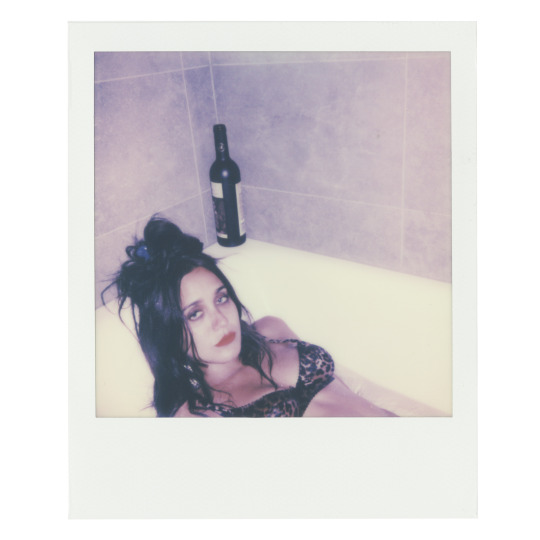
5 notes
·
View notes